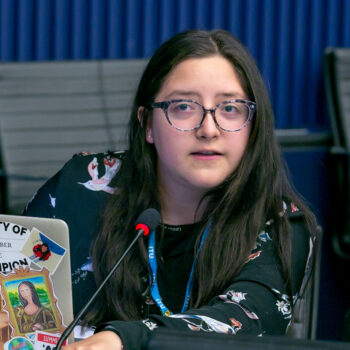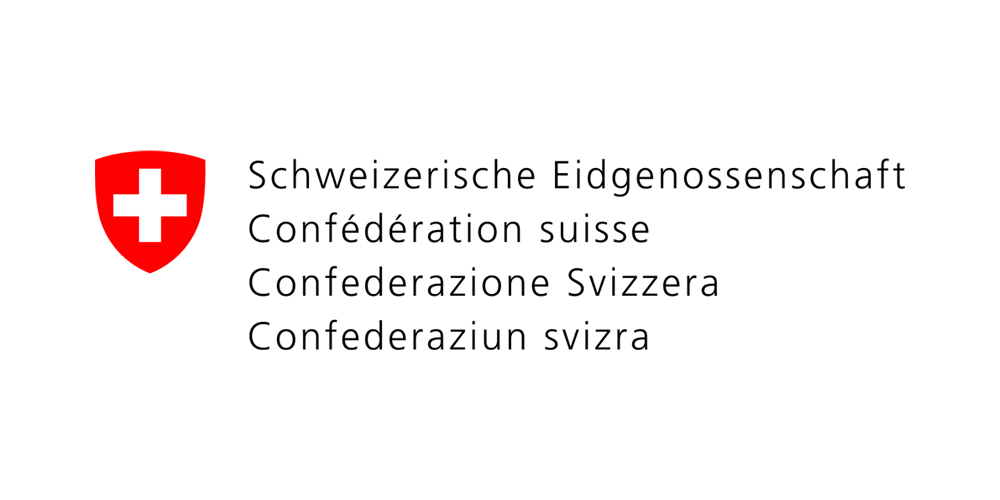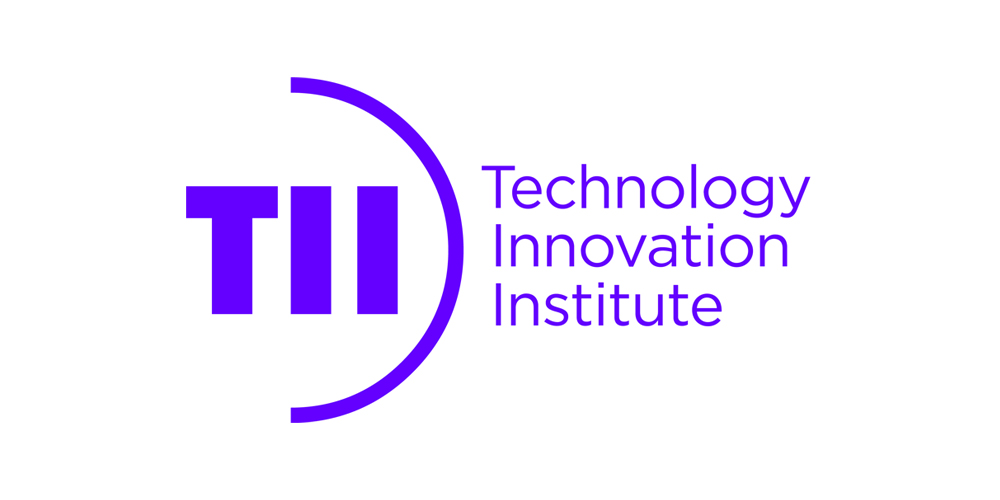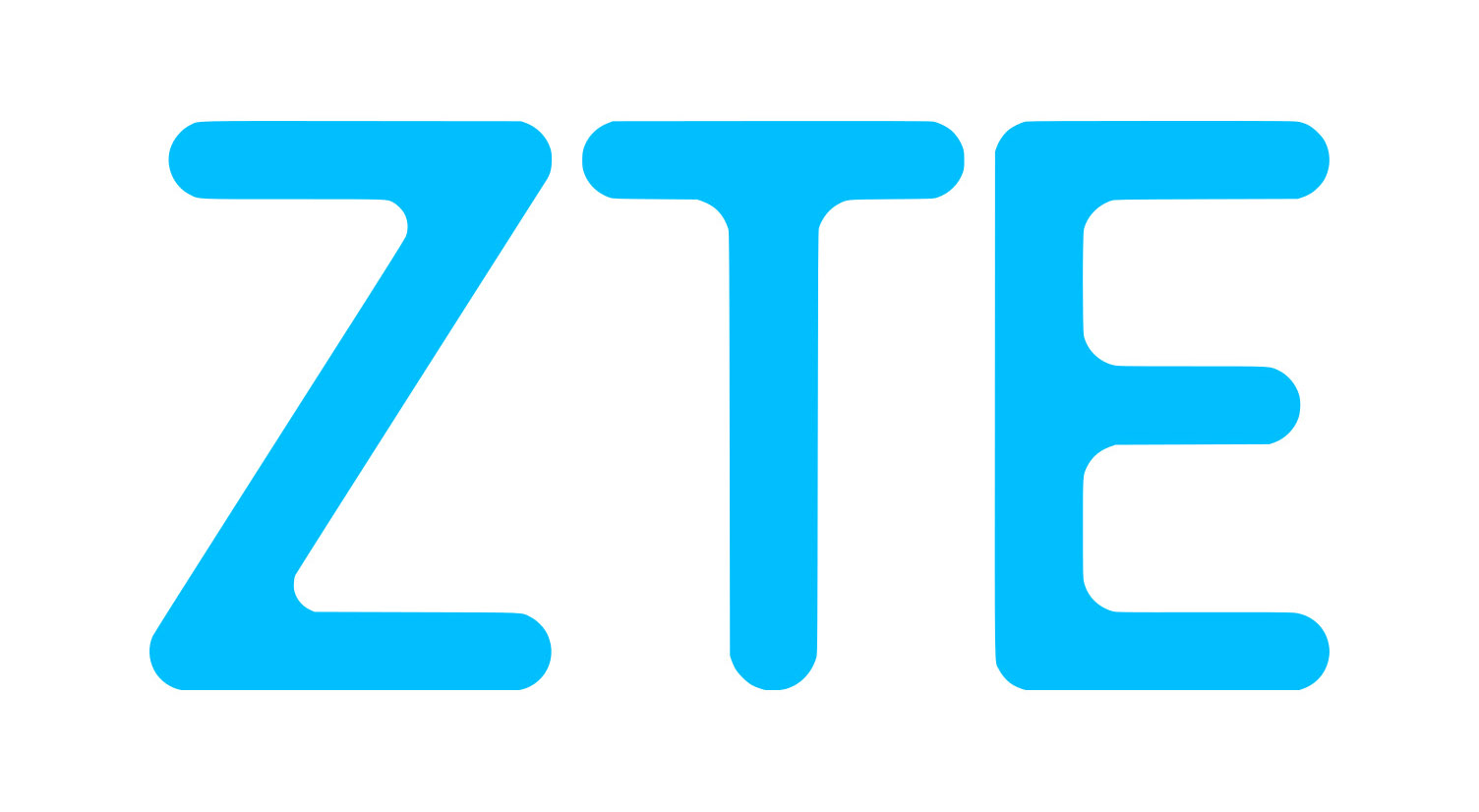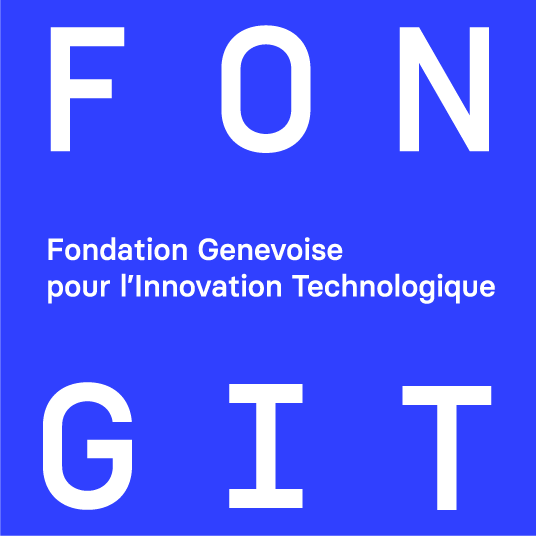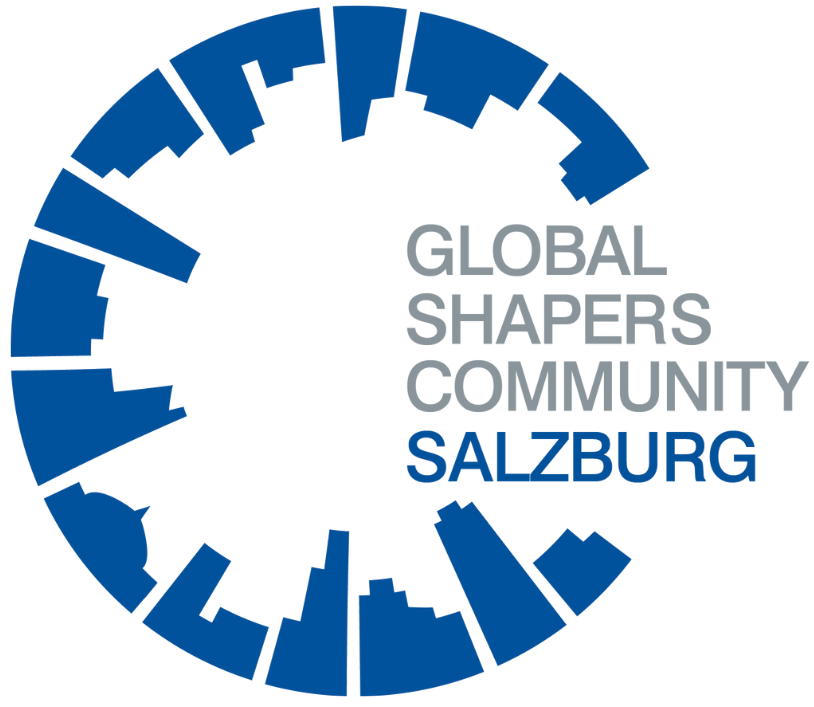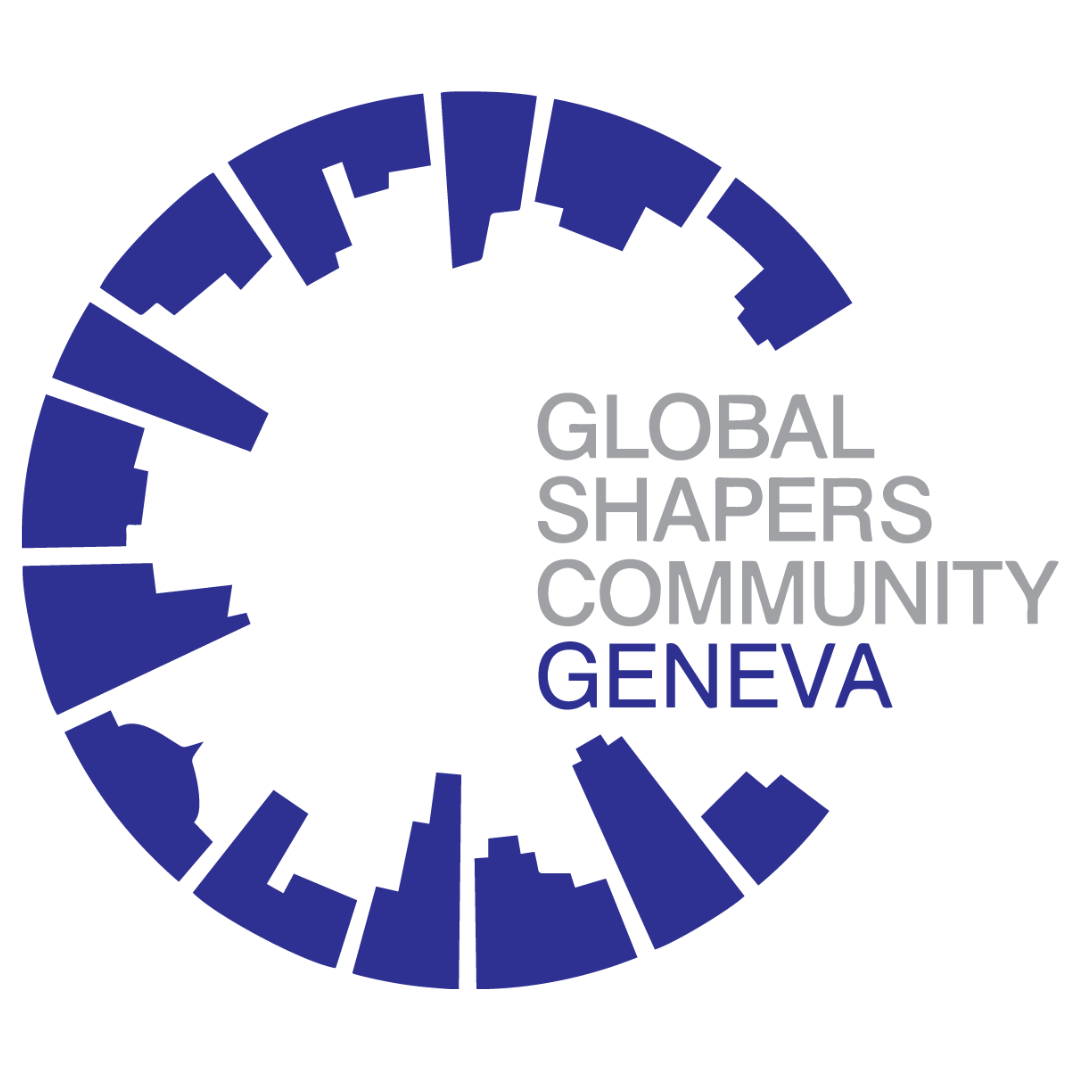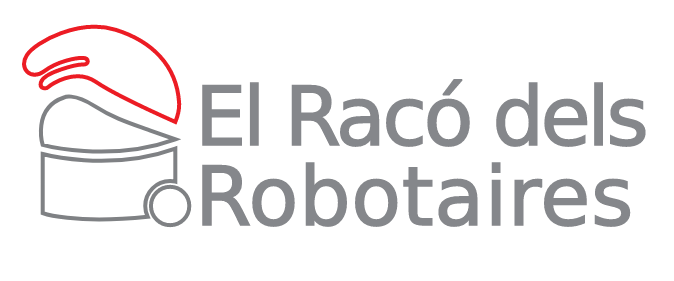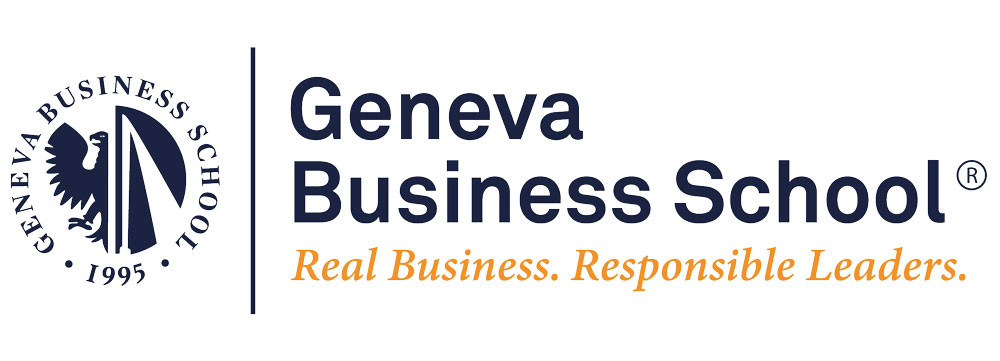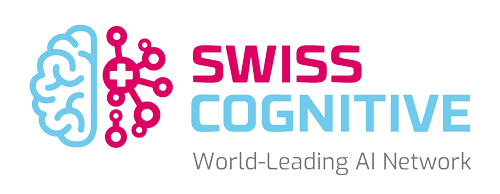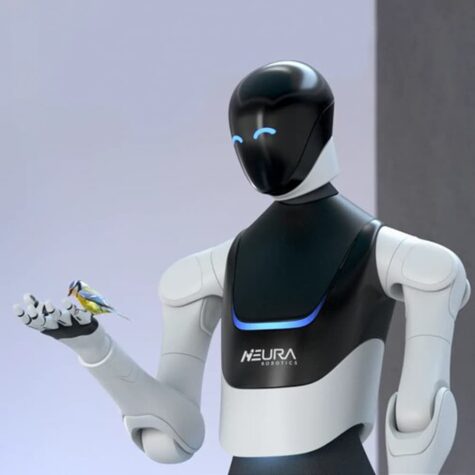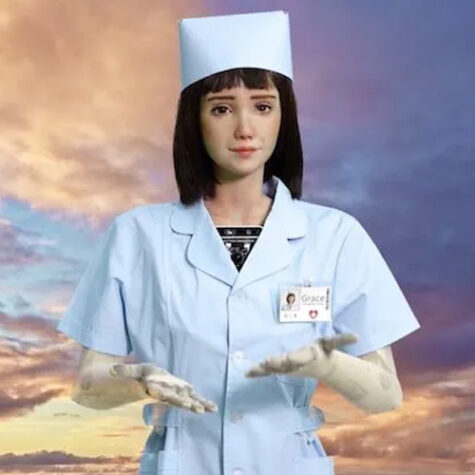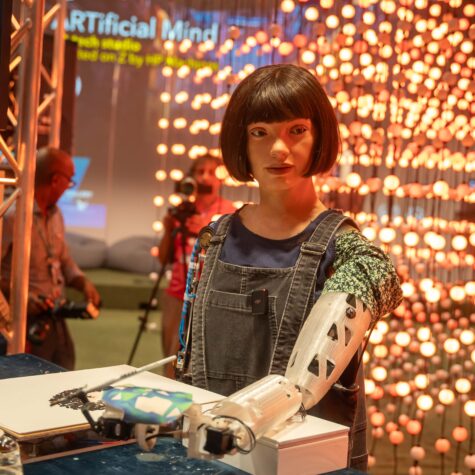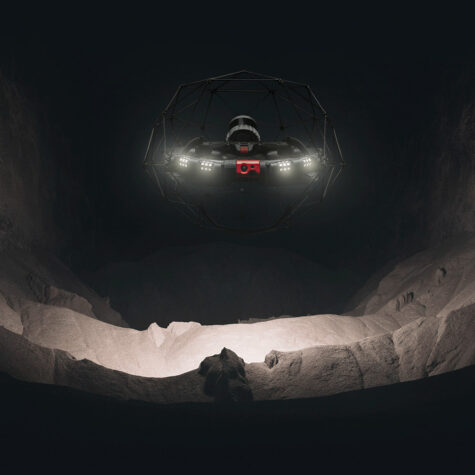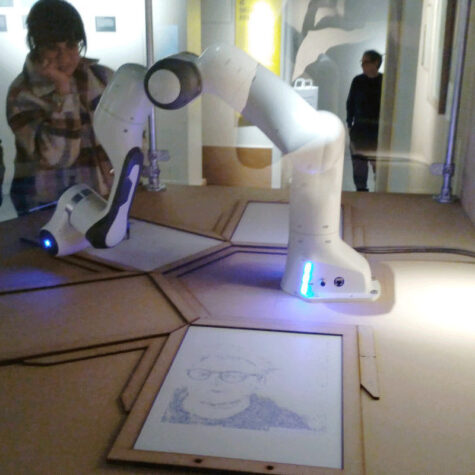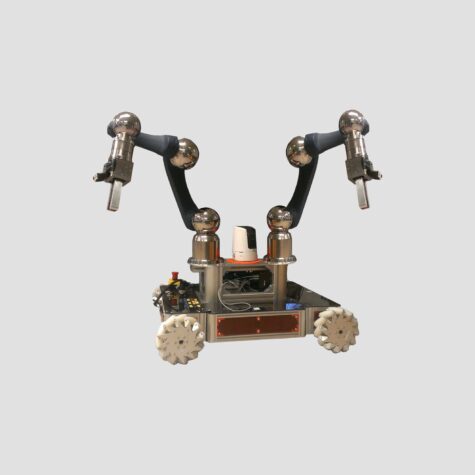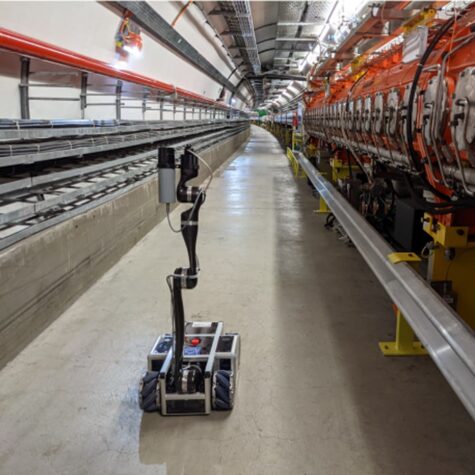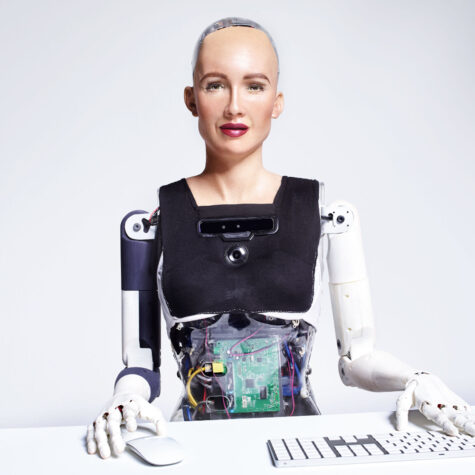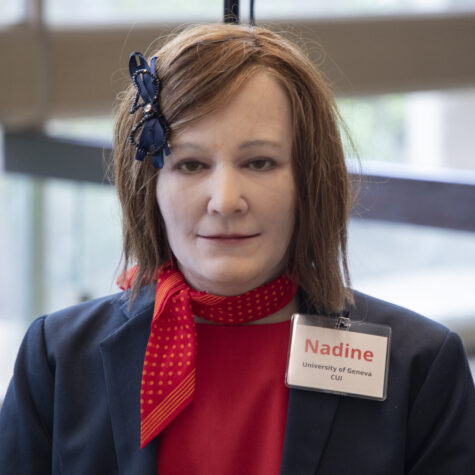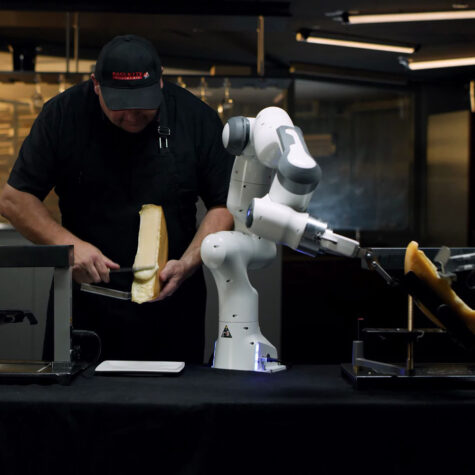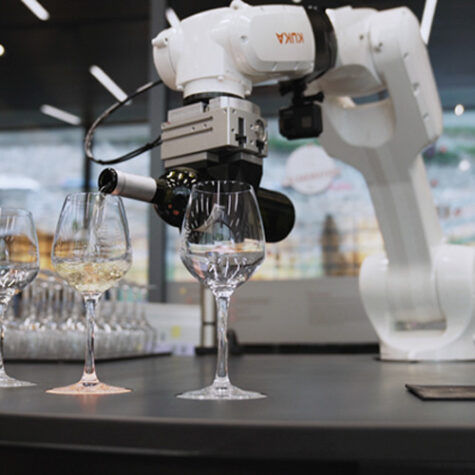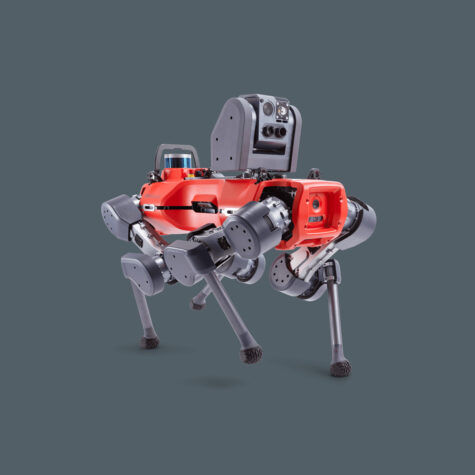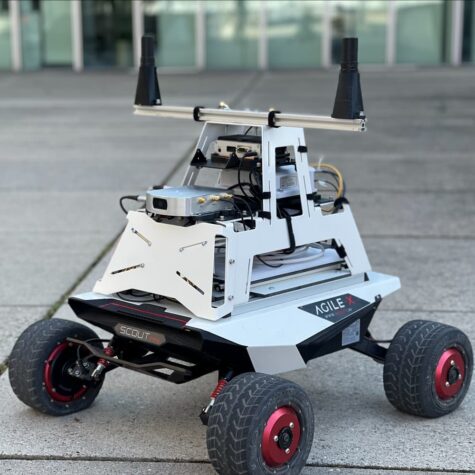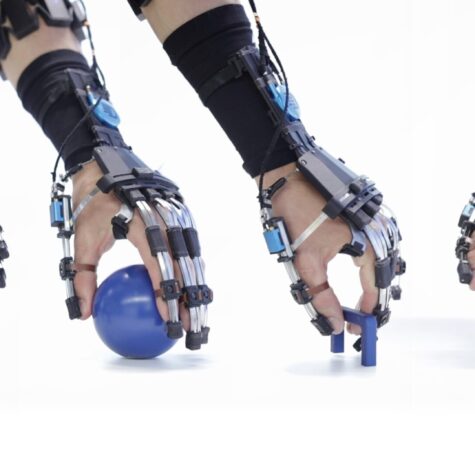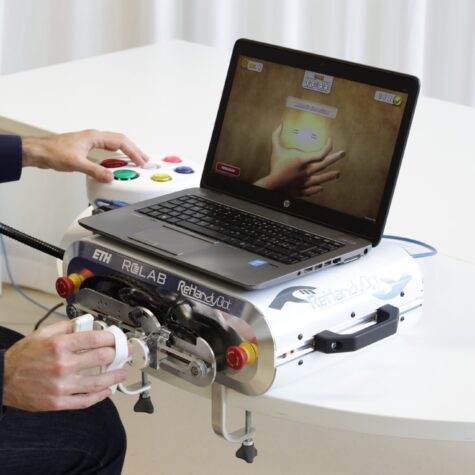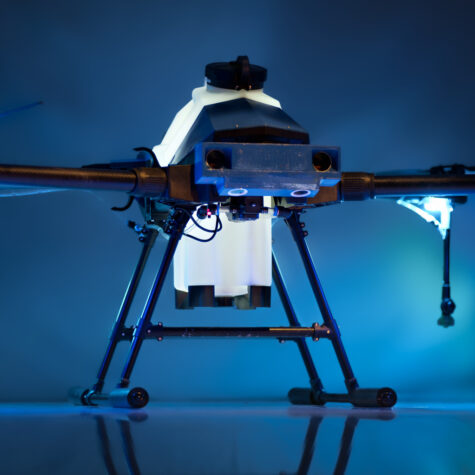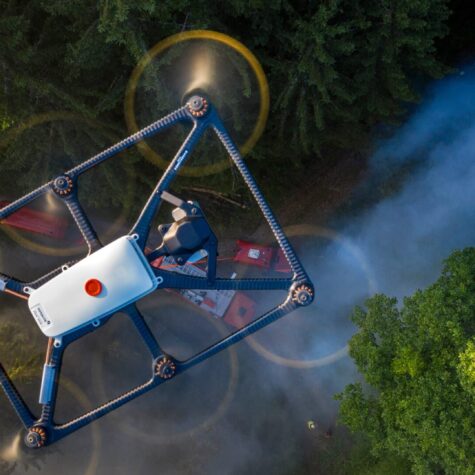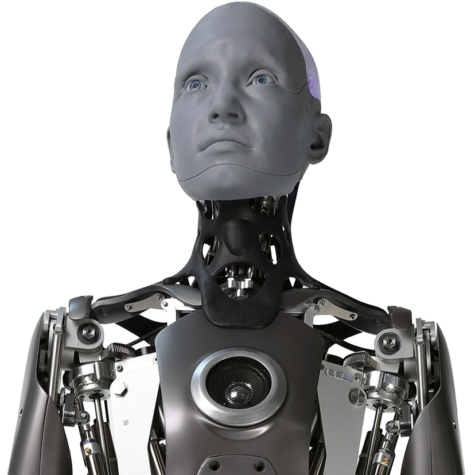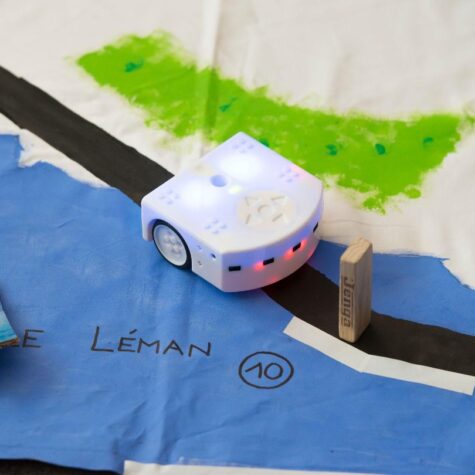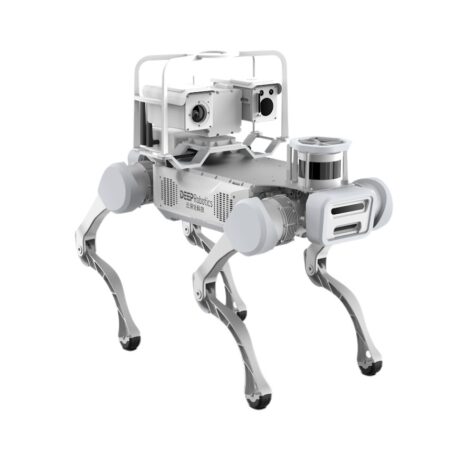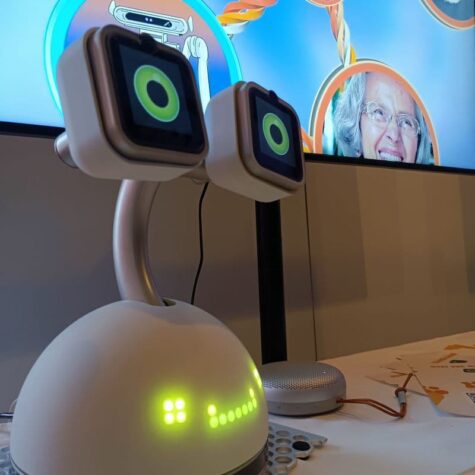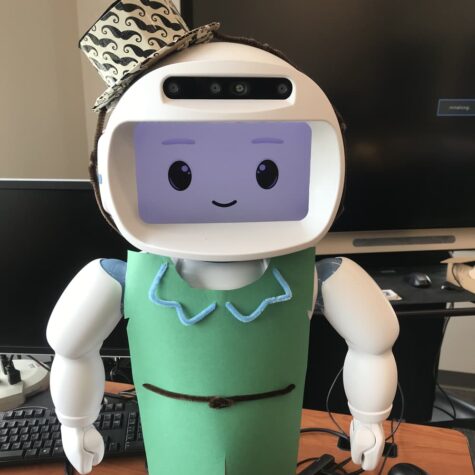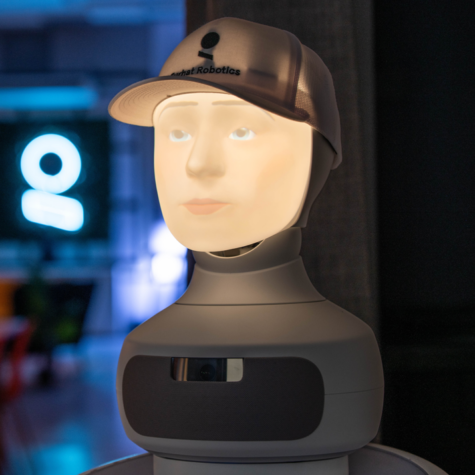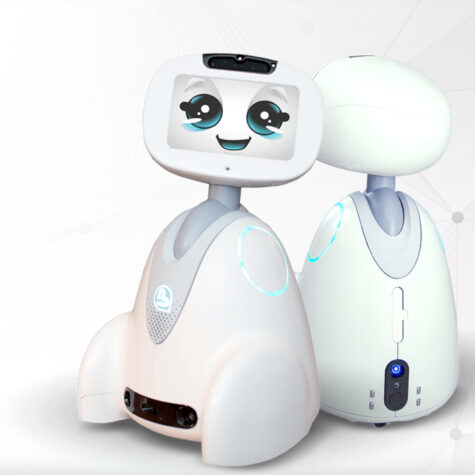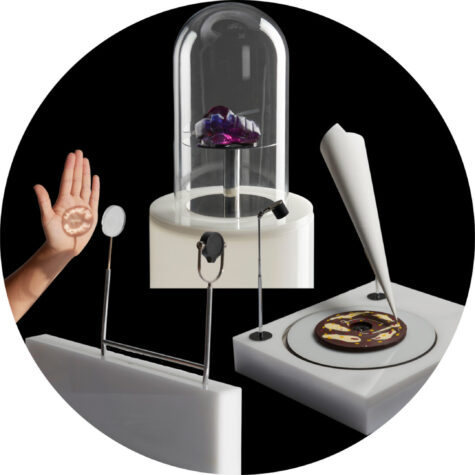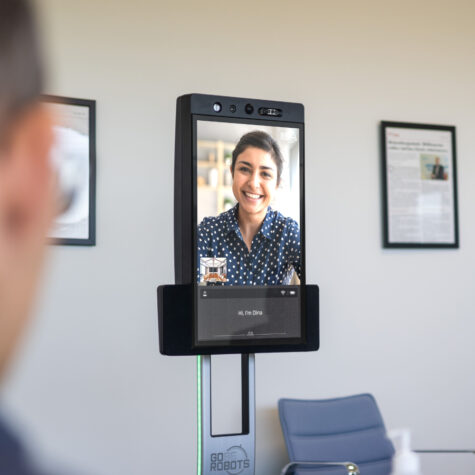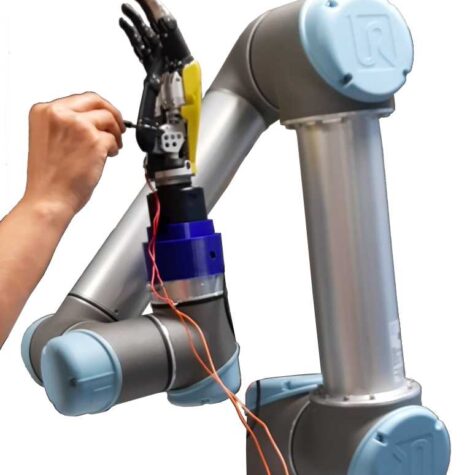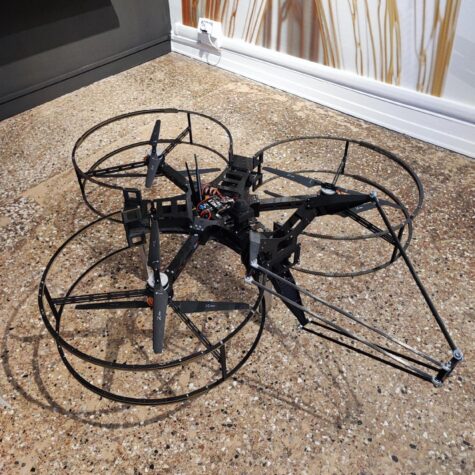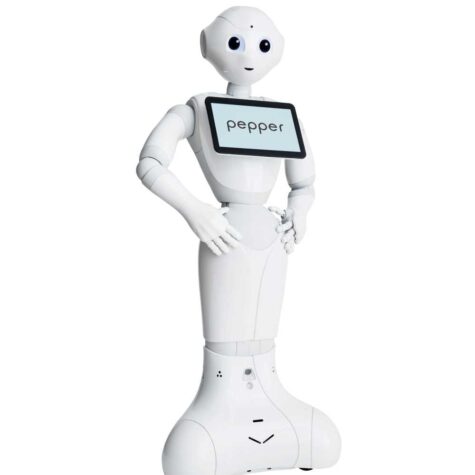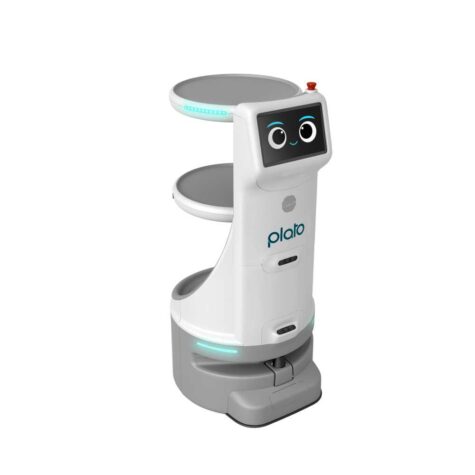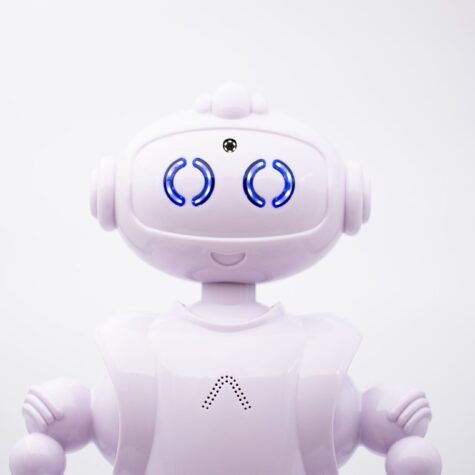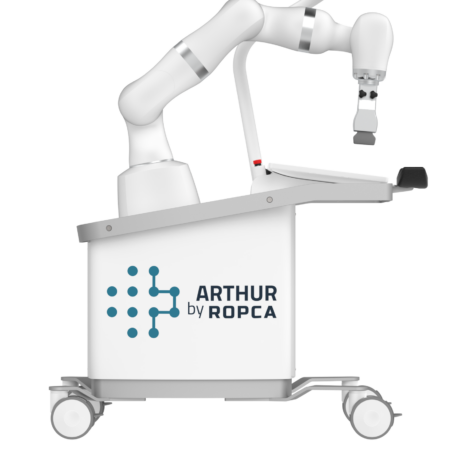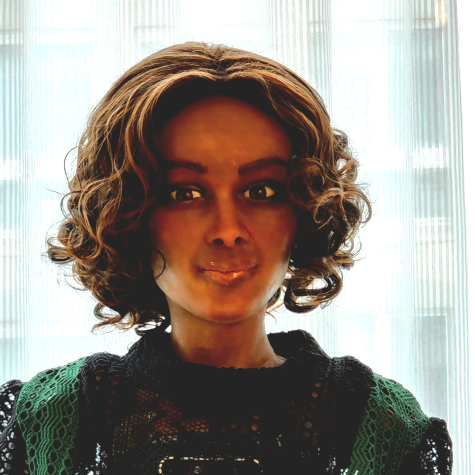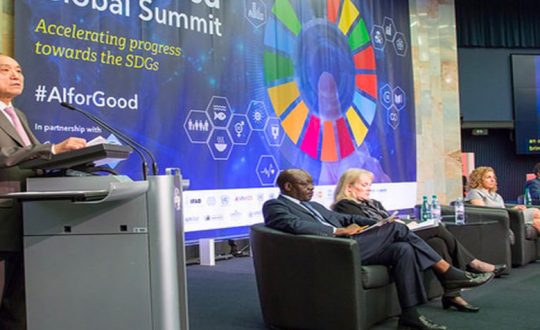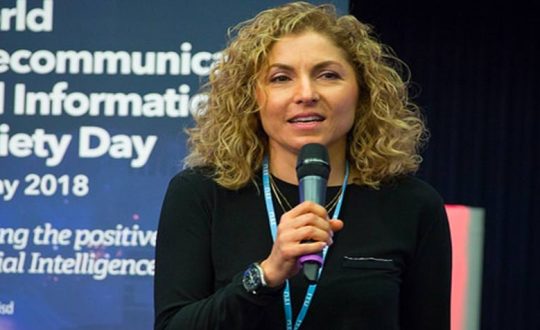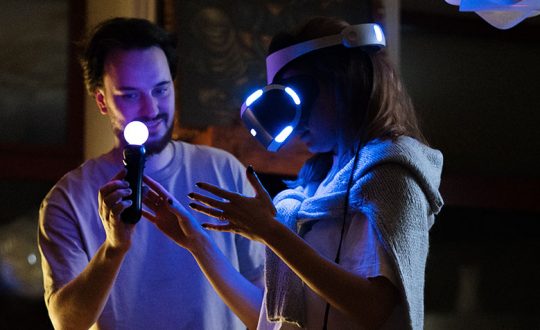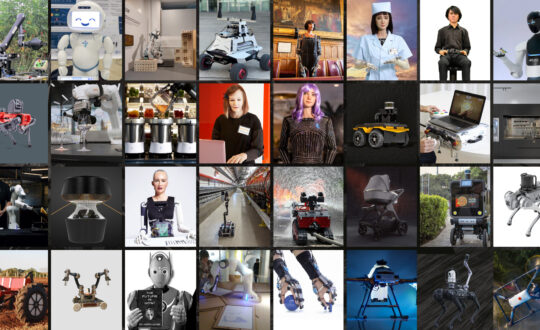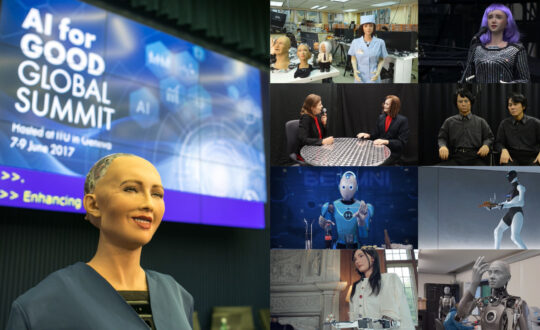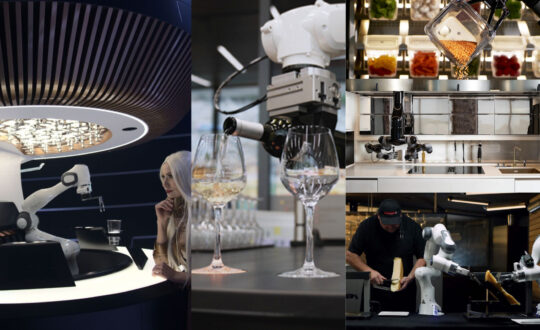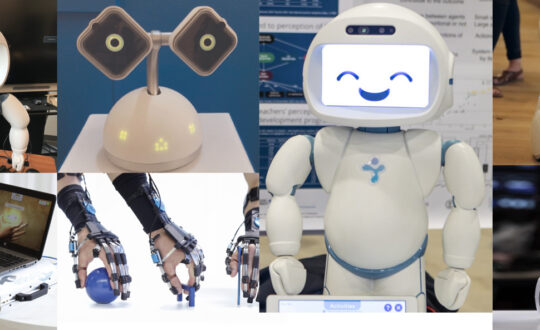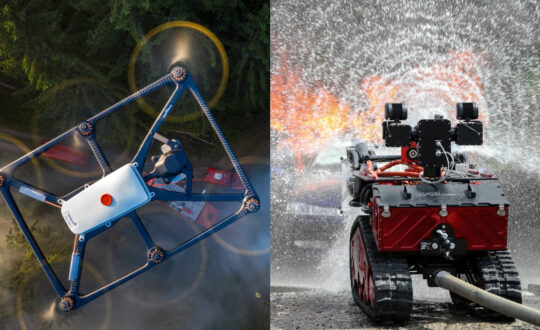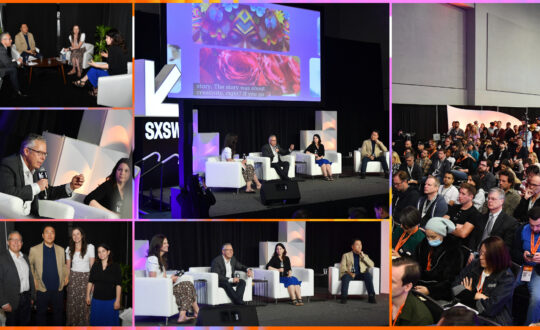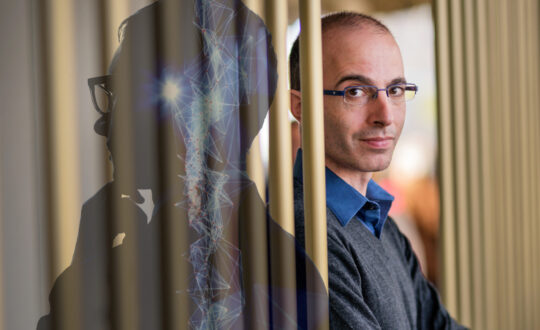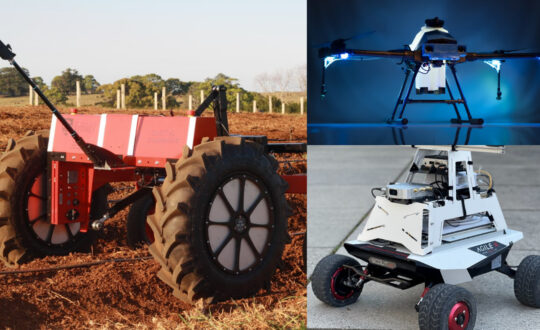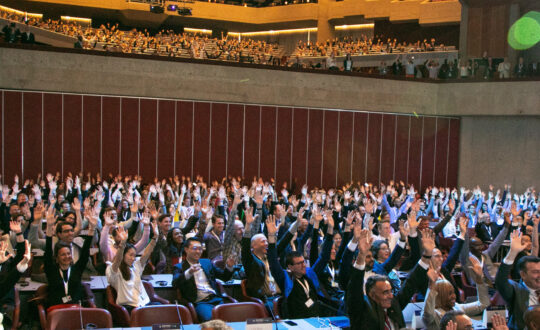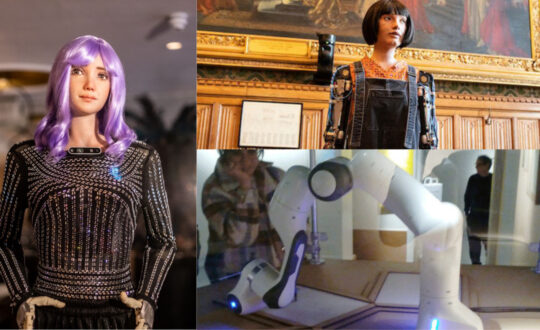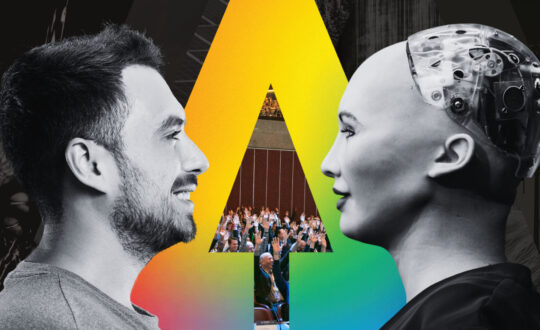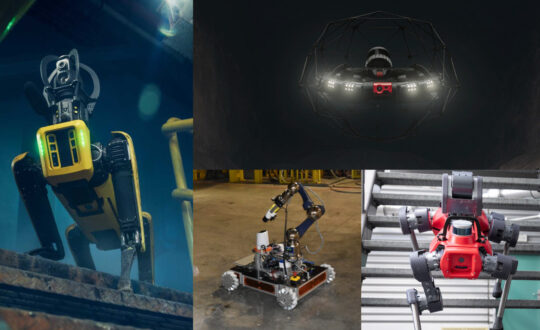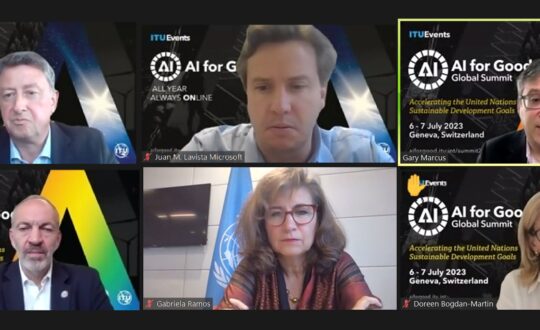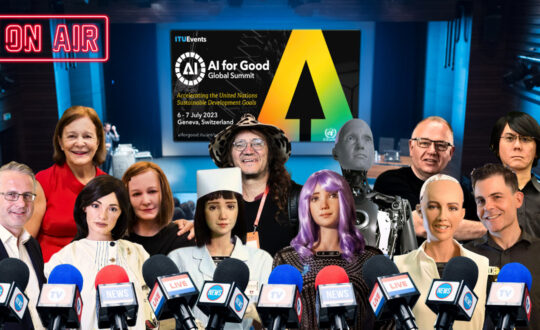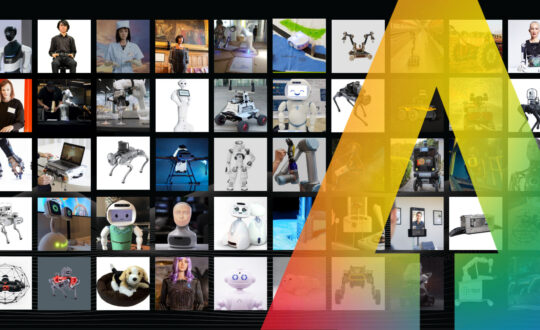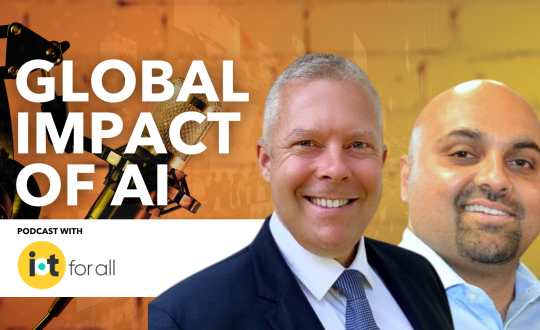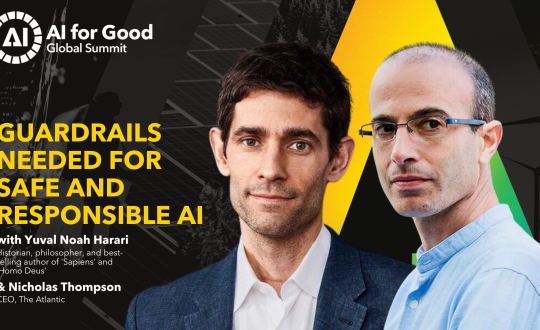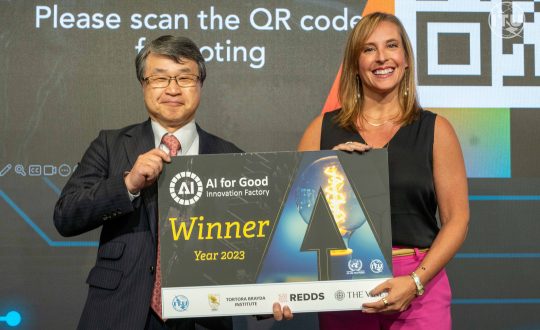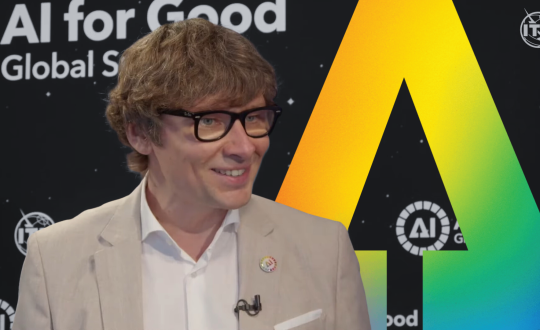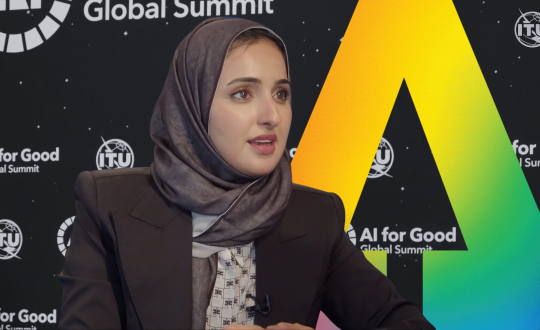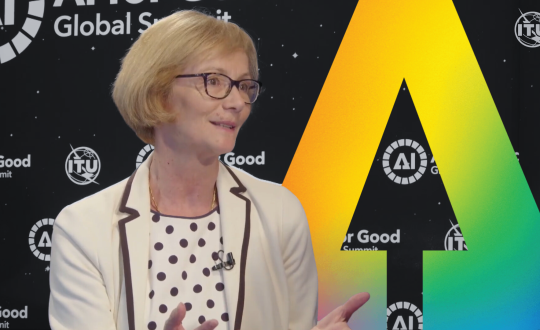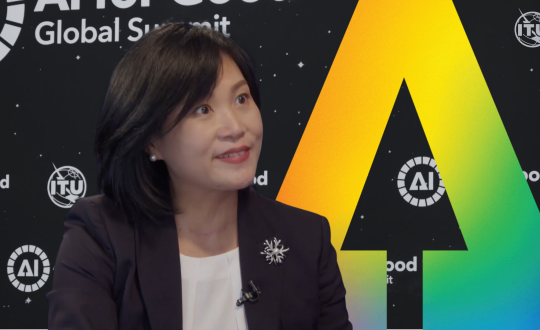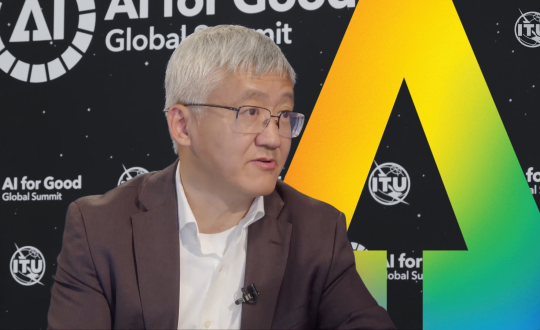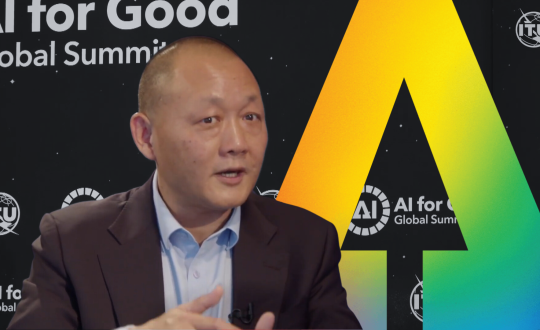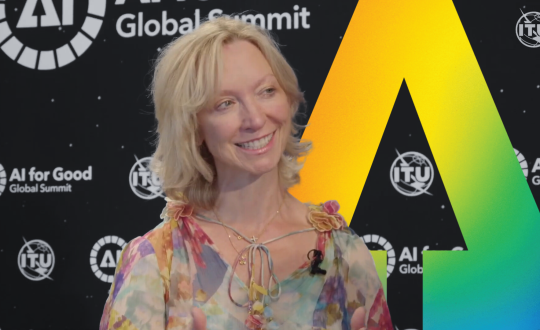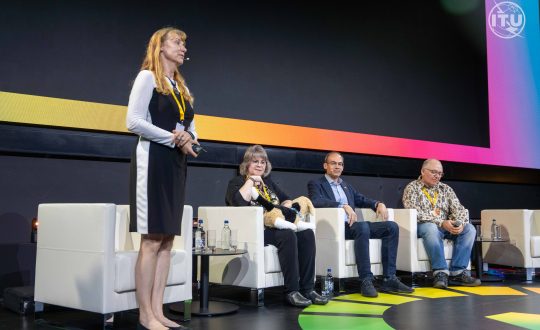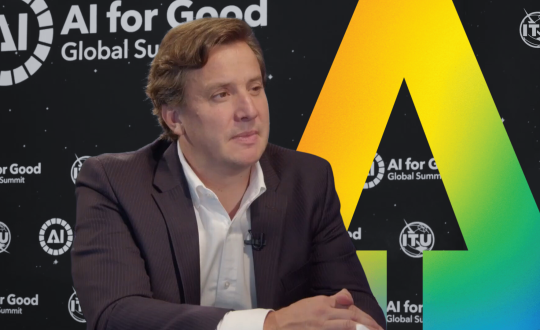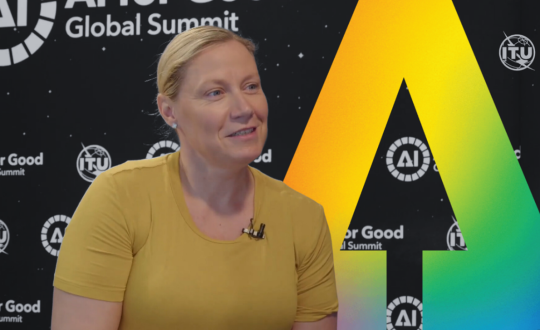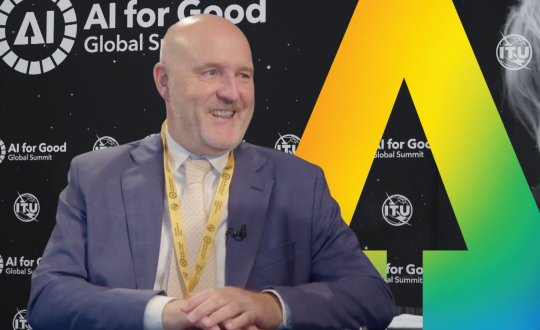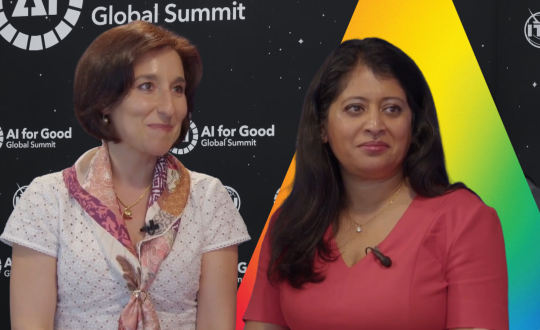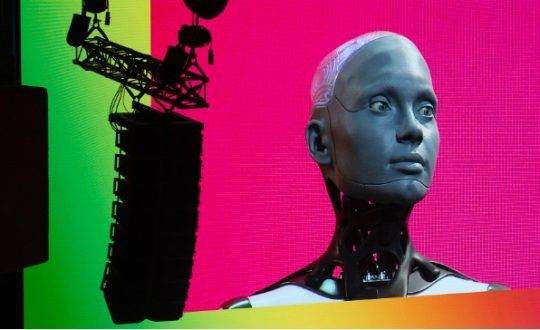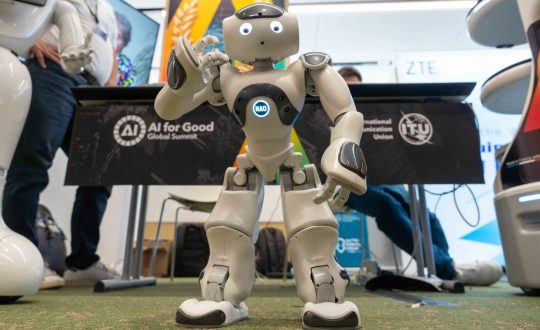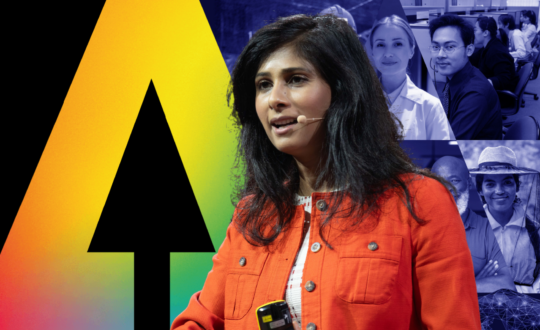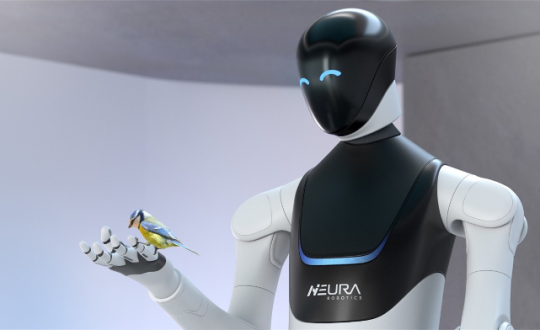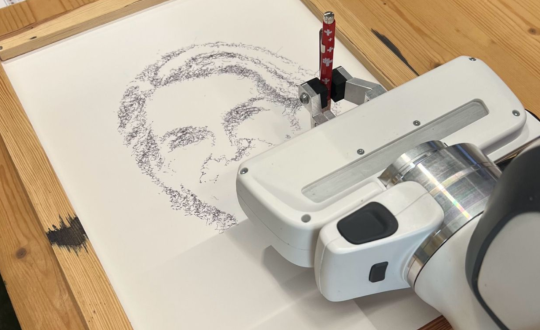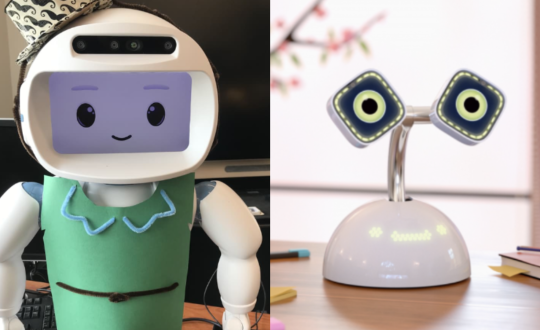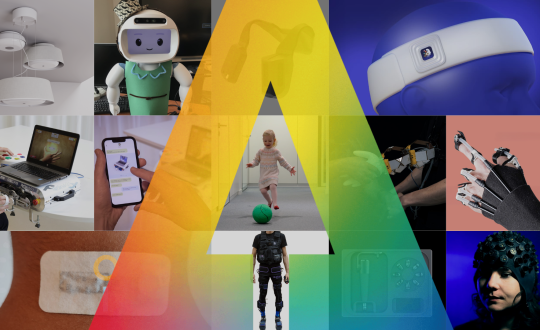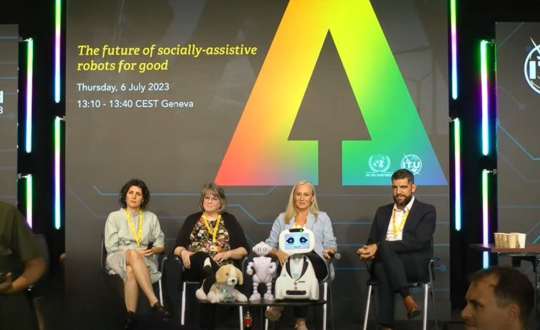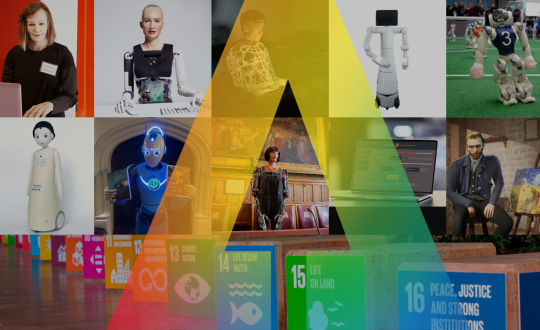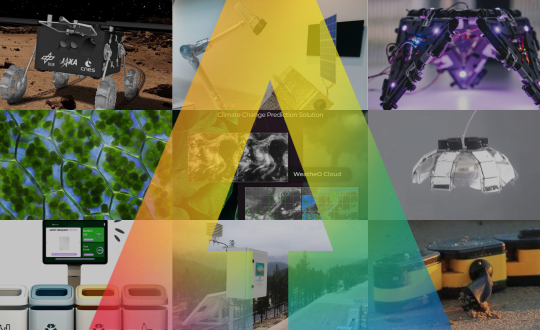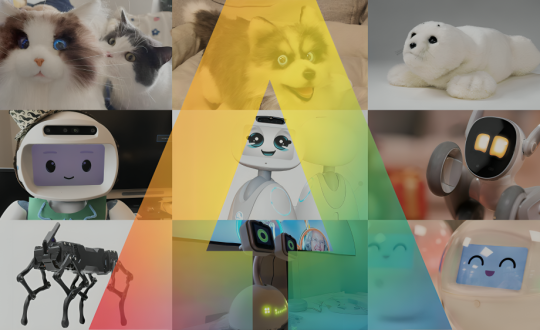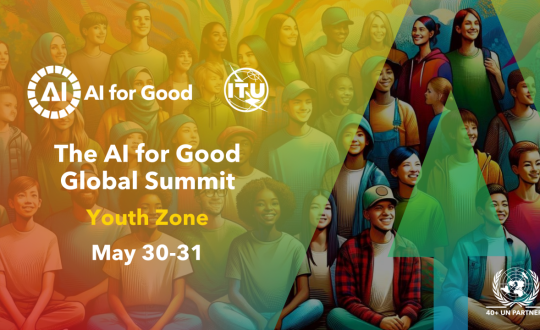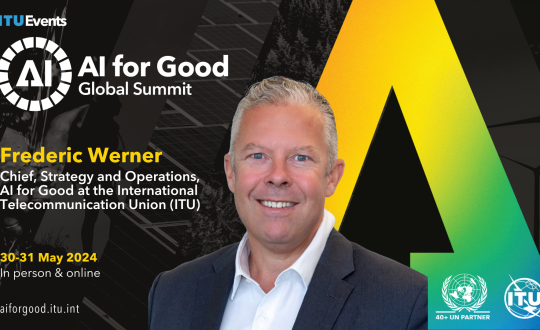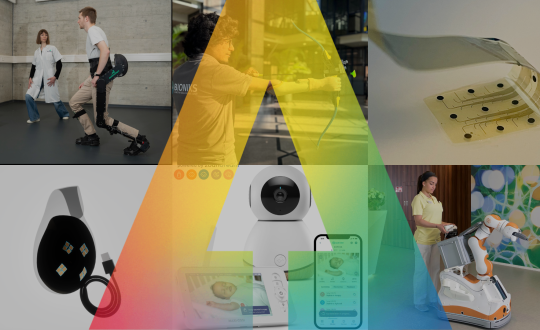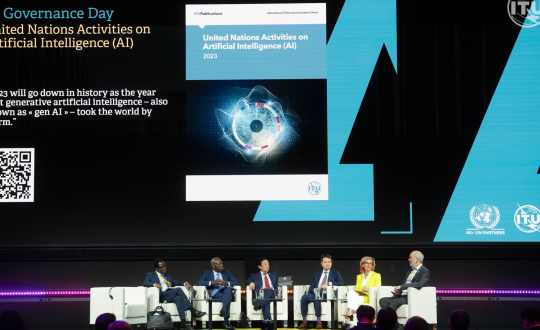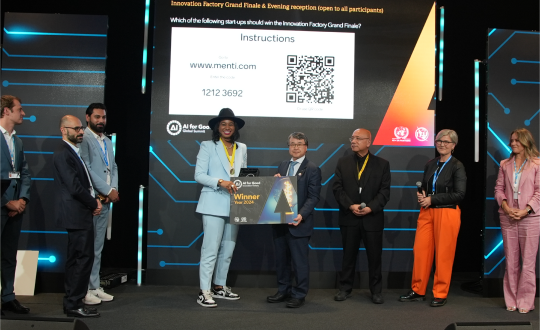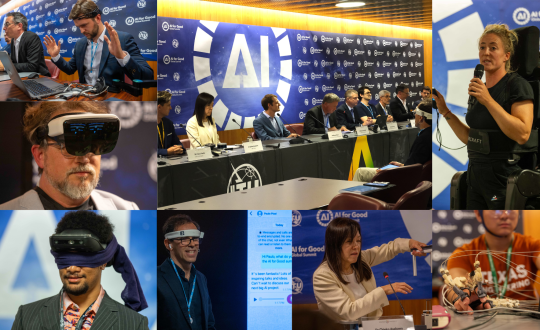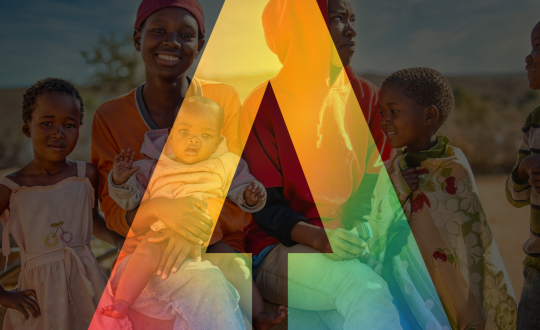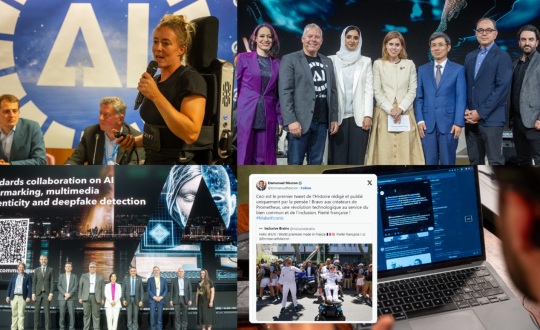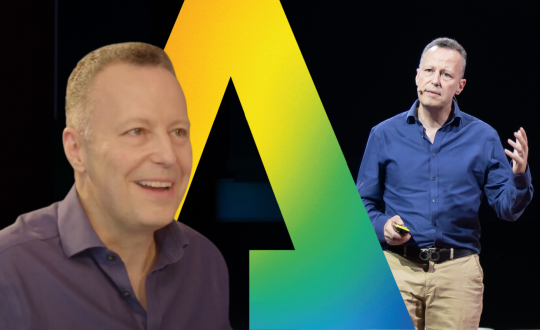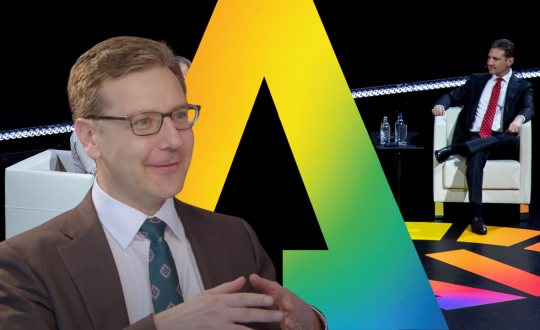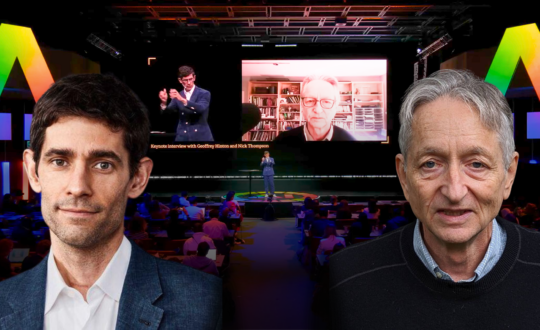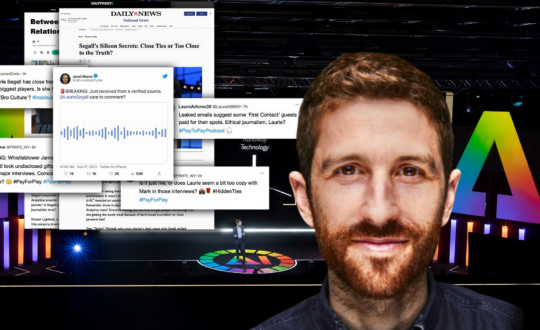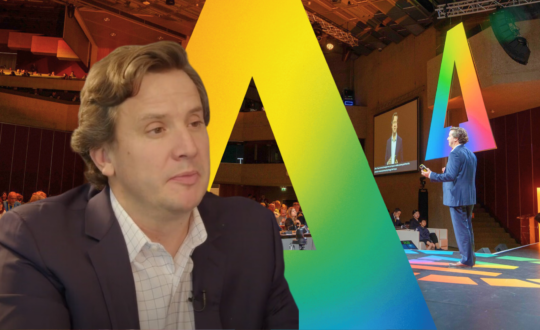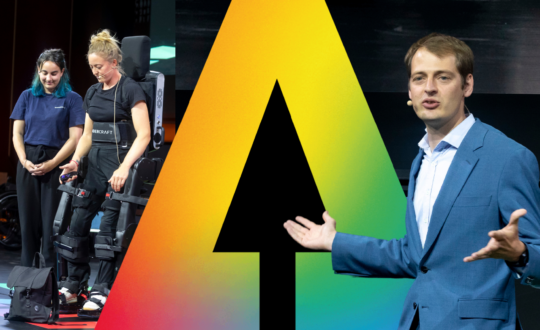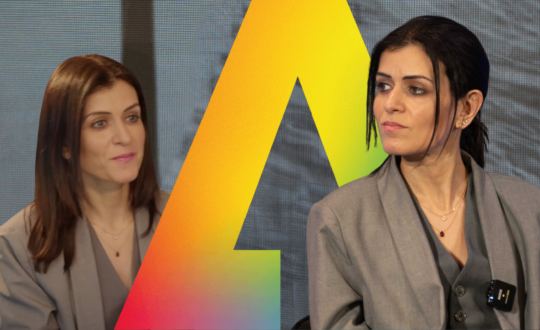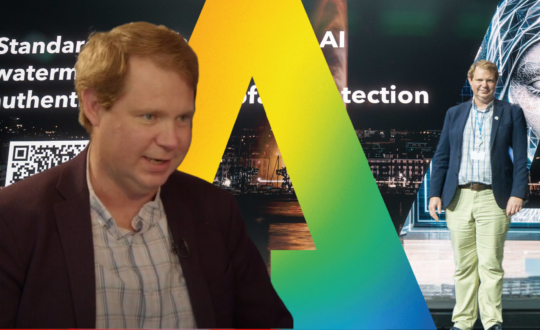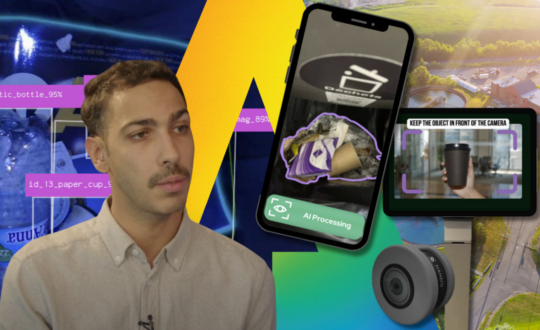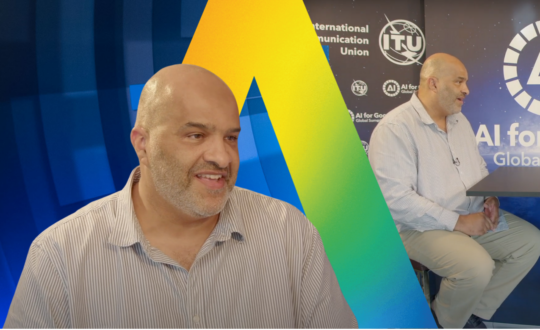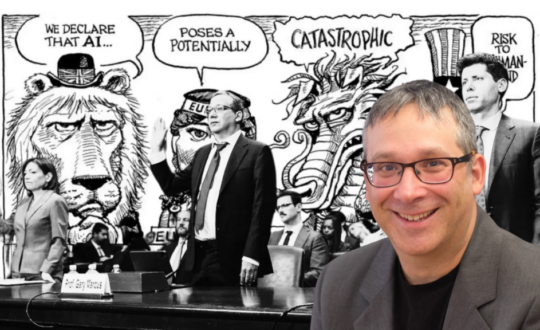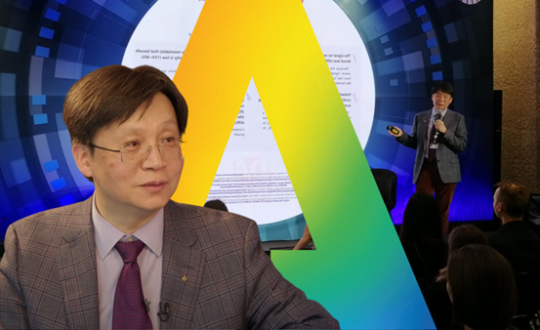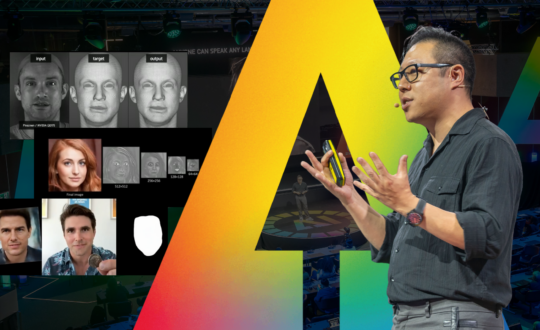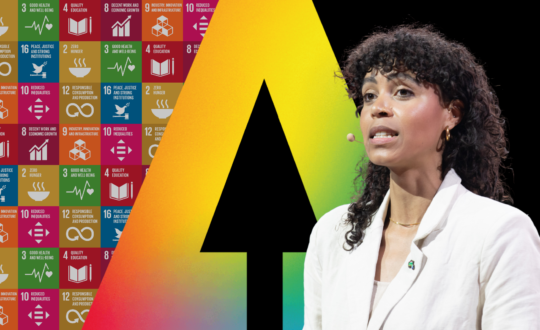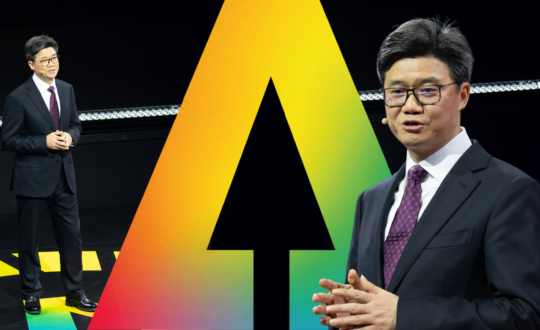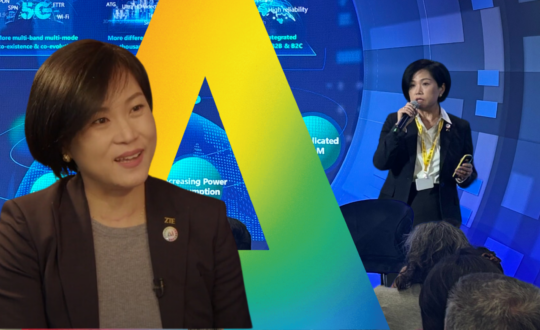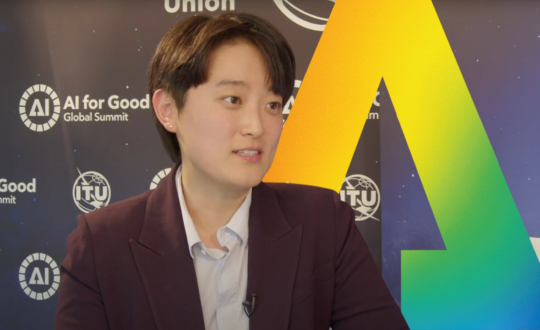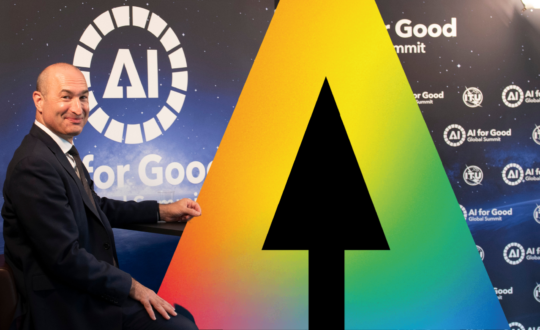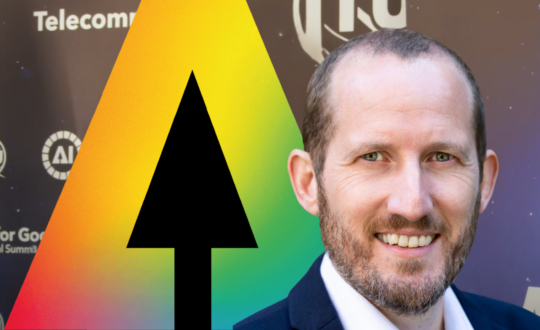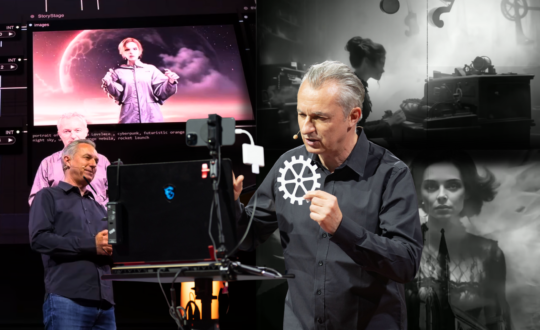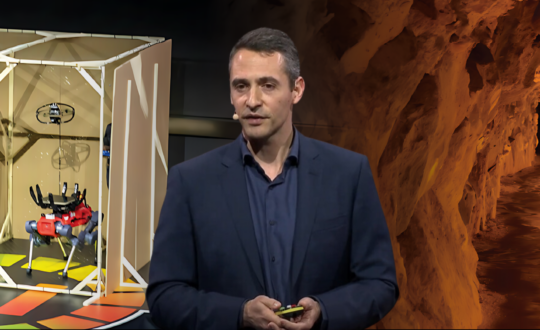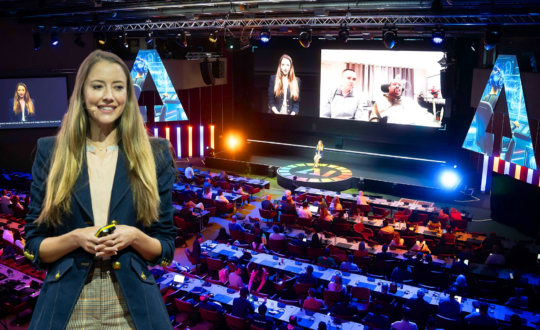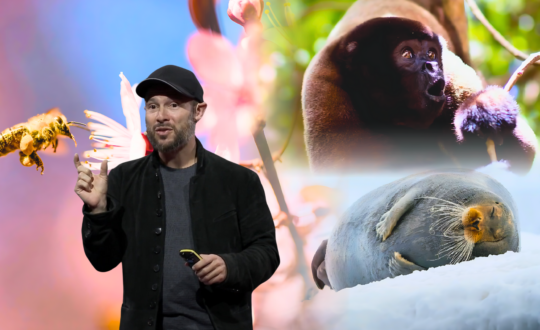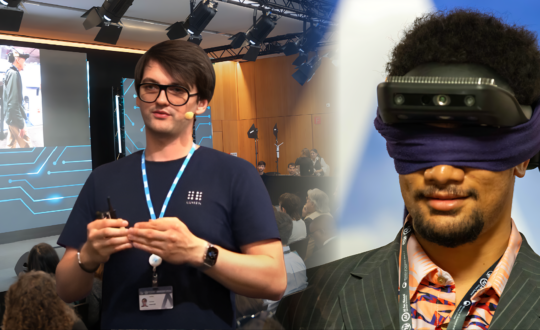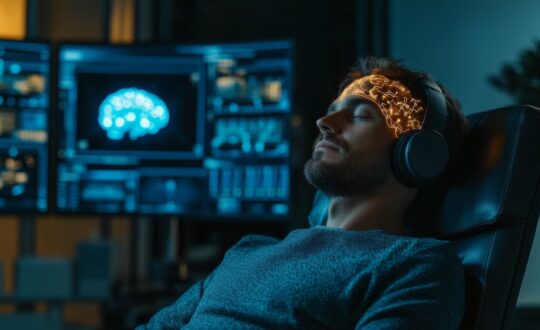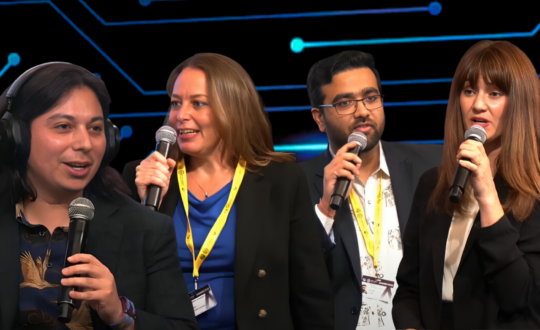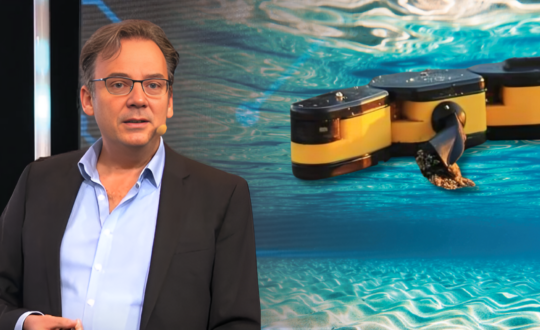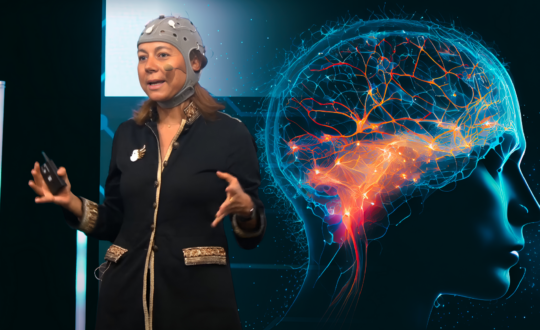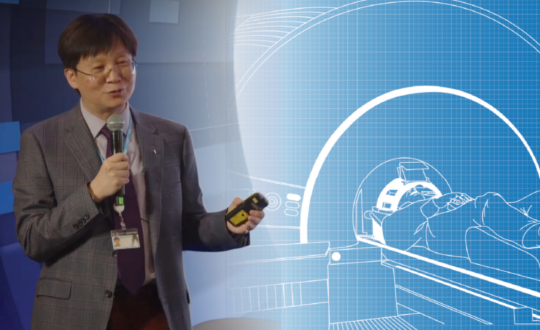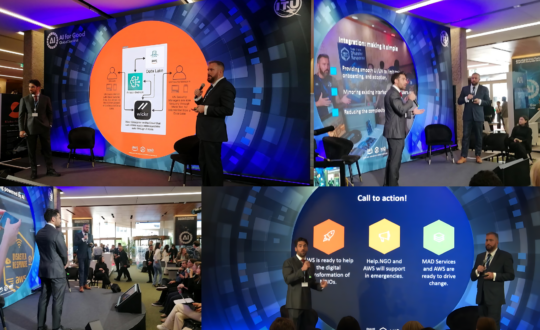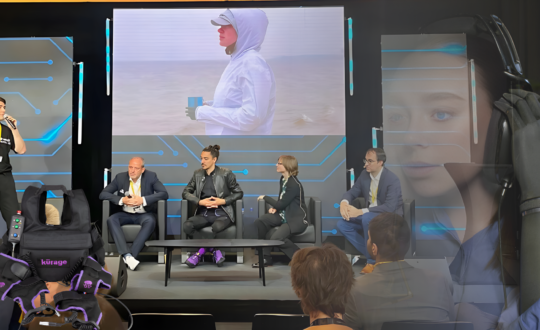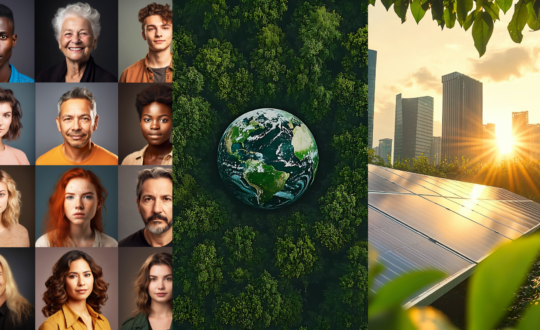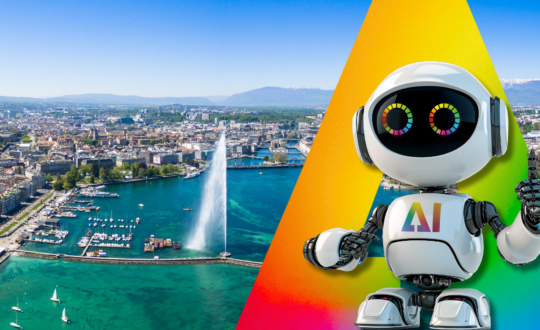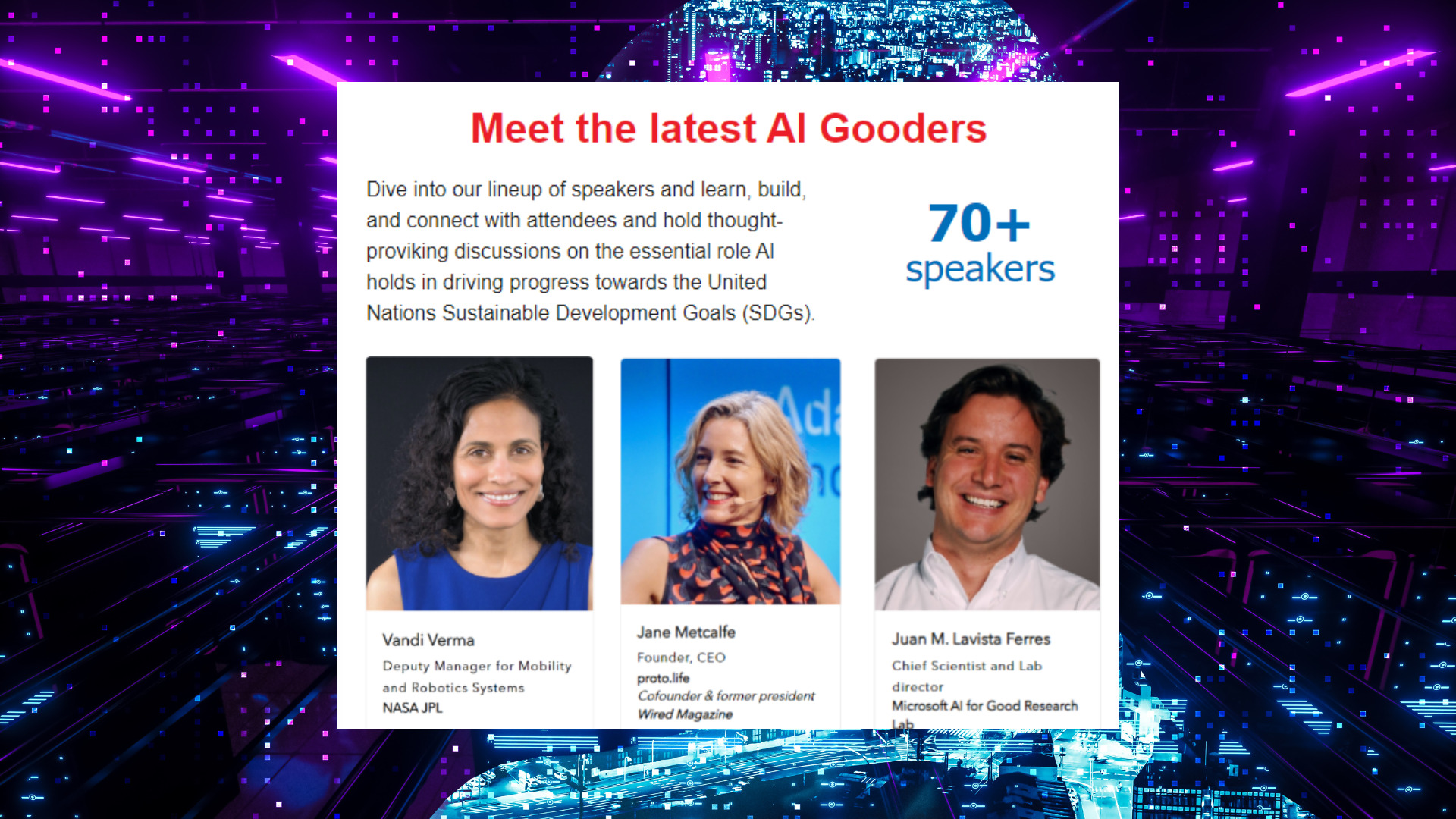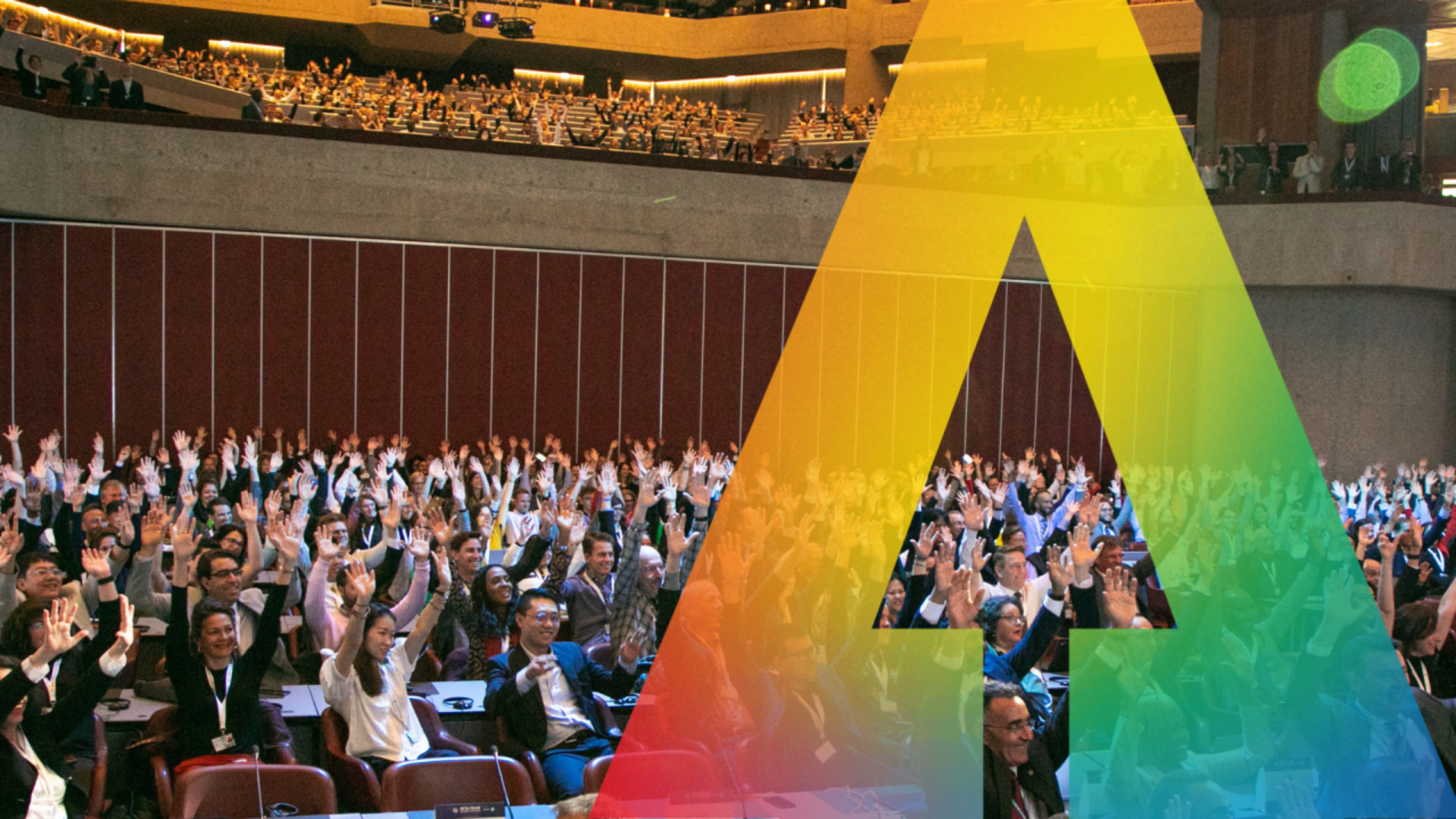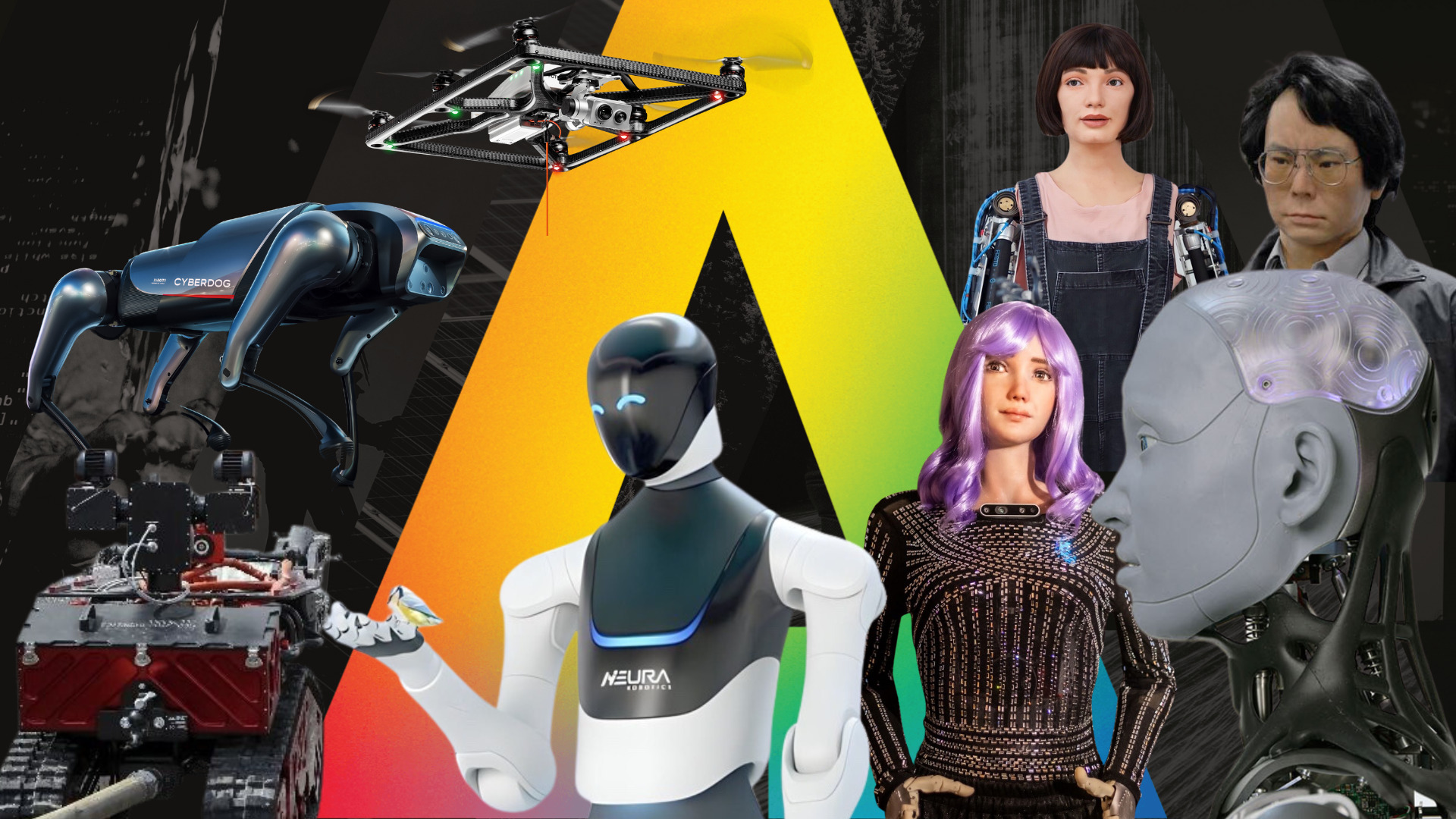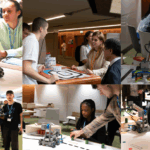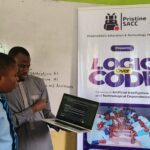
Sustainable Development Goals
6-7 July 2023
Sustainable Development Goals
6-7 July 2023


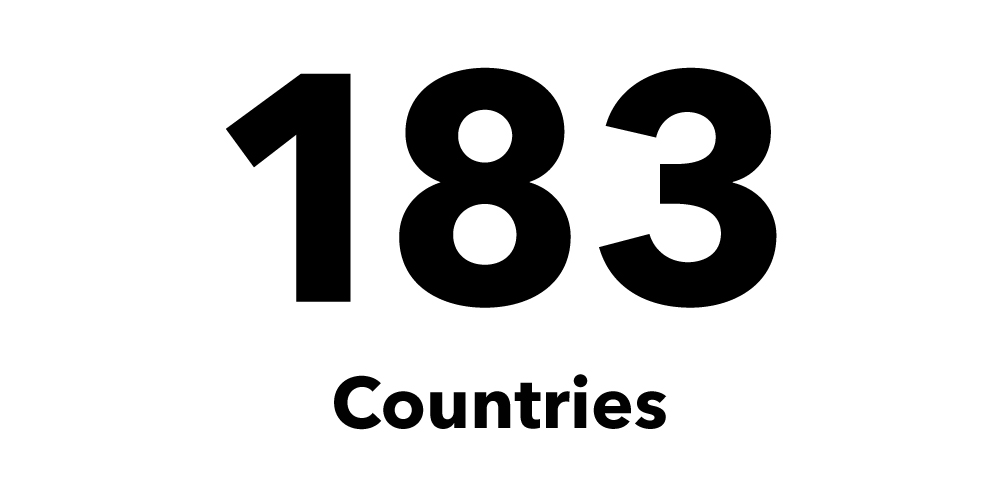

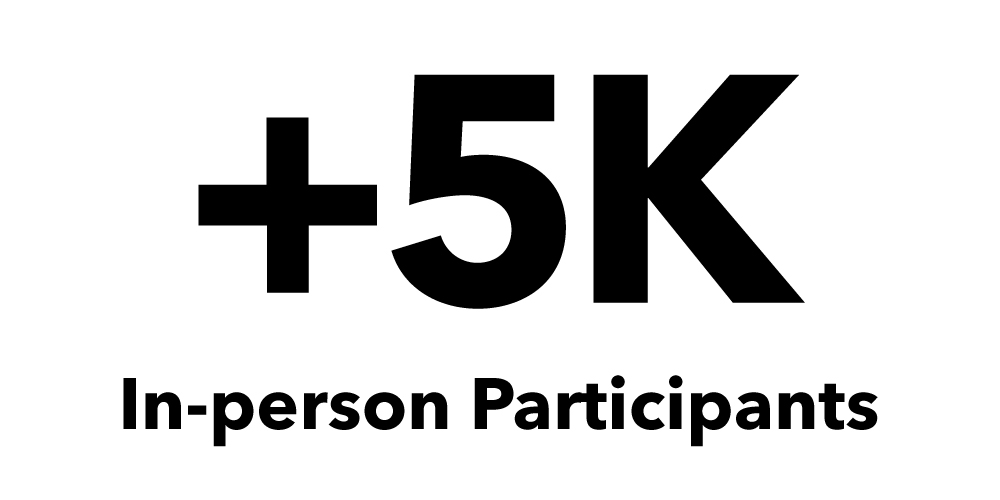













The Goal

Identify practical applications of AI

Scale solutions for global impact

Accelerate progress towards the
UN Sustainable Development Goals
The AI for Good Global Summit is the leading action-oriented United Nations platform promoting AI to advance health, climate, gender, inclusive prosperity, sustainable infrastructure, and other global development priorities. AI for Good is organized by the International Telecommunication Union (ITU) – the UN specialized agency for information and communication technology – in partnership with 40 UN sister agencies and co-convened with the government of Switzerland.
Organized by
 |
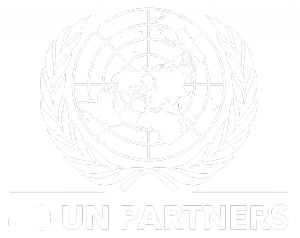 |
 |
Summit Speakers

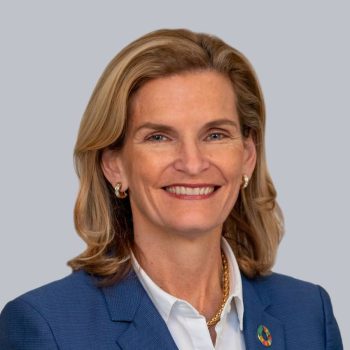

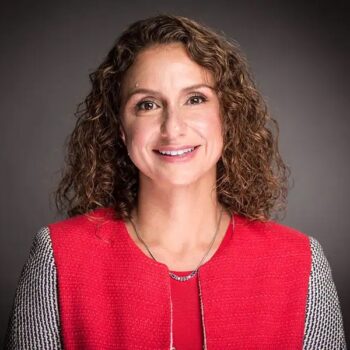





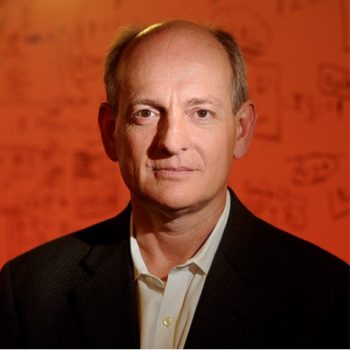

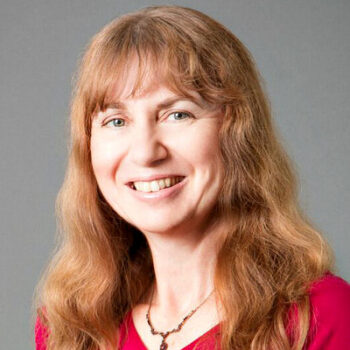
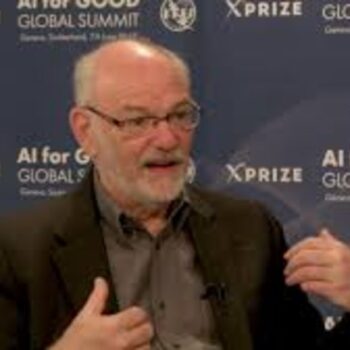


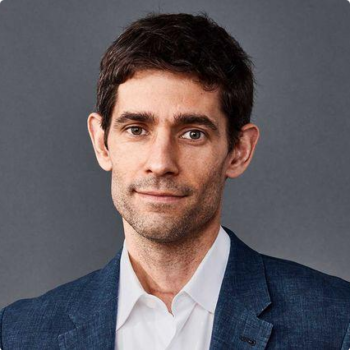
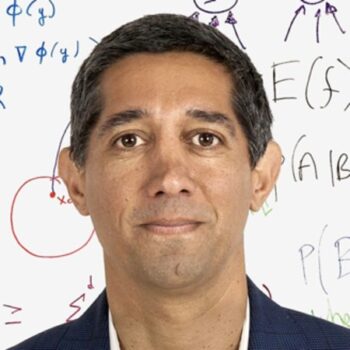

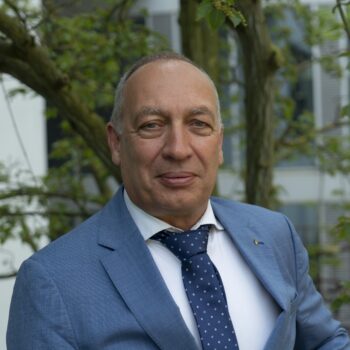




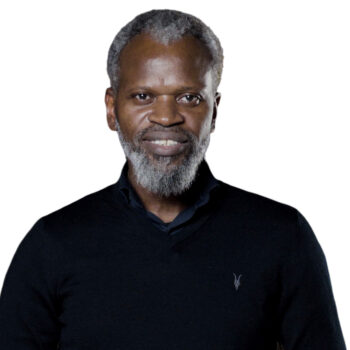
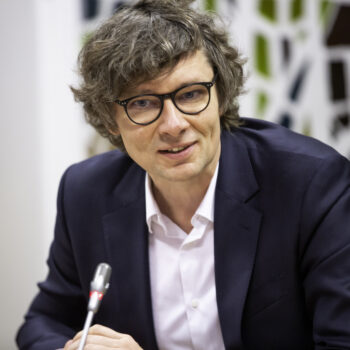


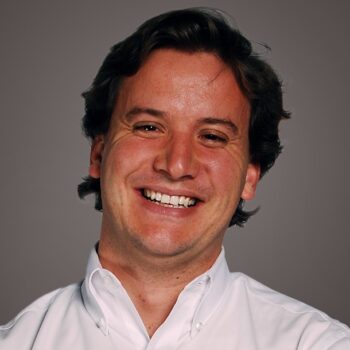


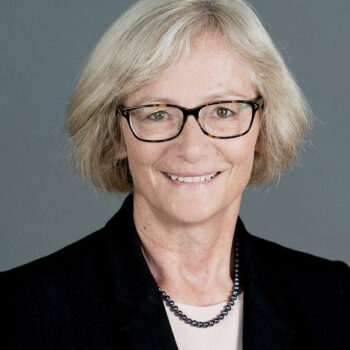
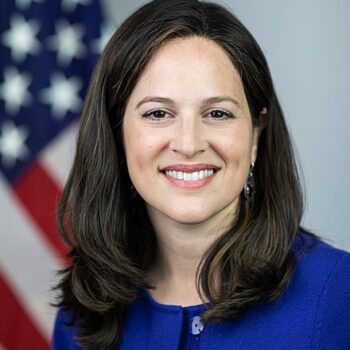
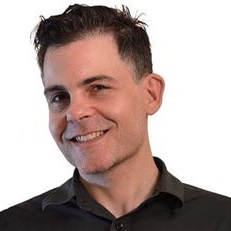
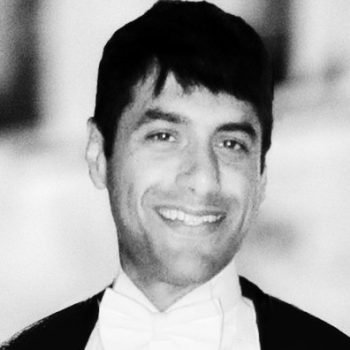




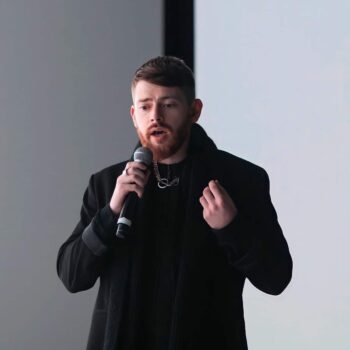



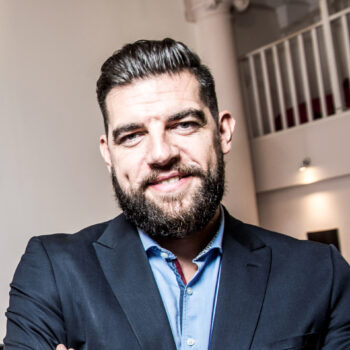
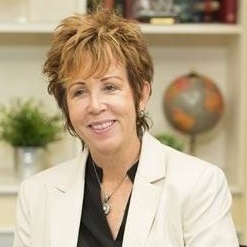
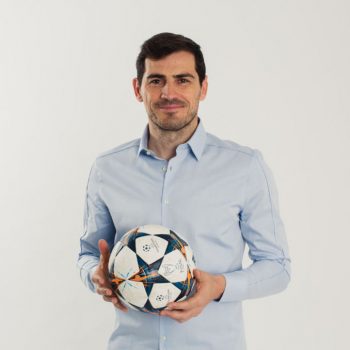







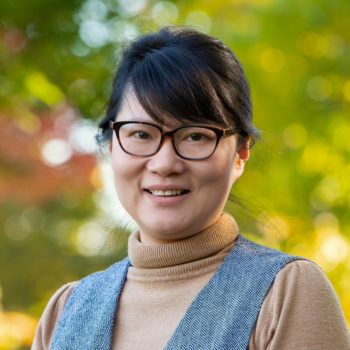





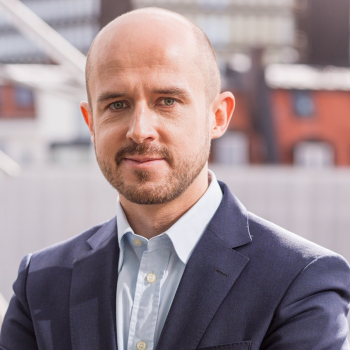



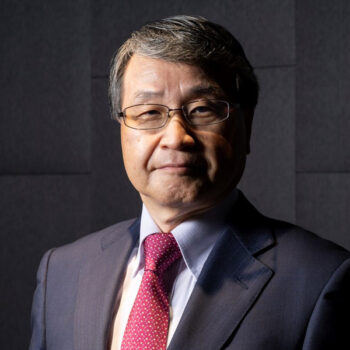


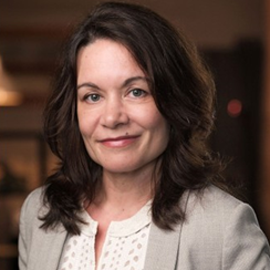
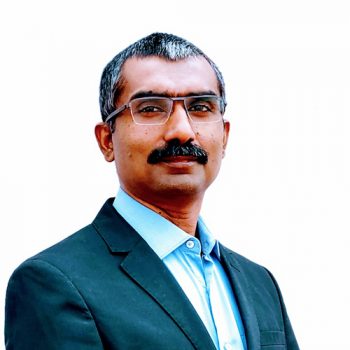



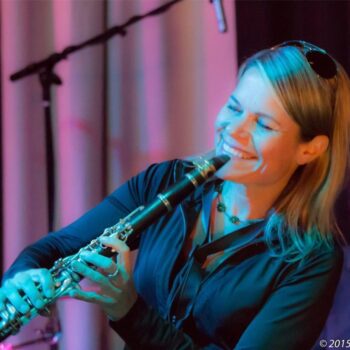


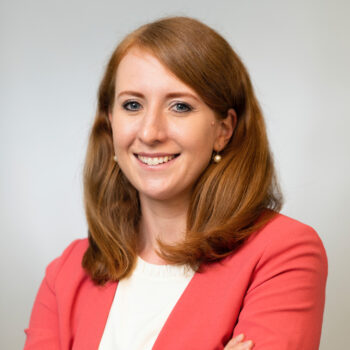

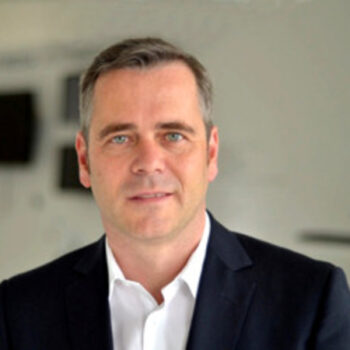





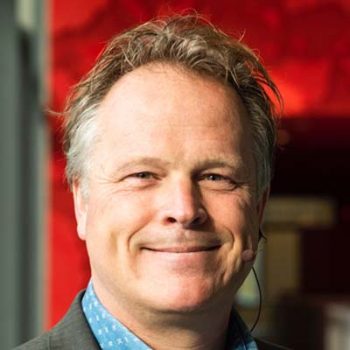
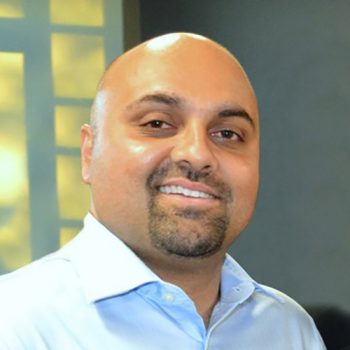


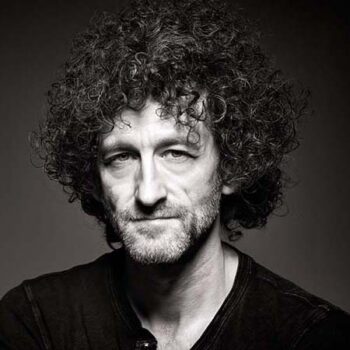
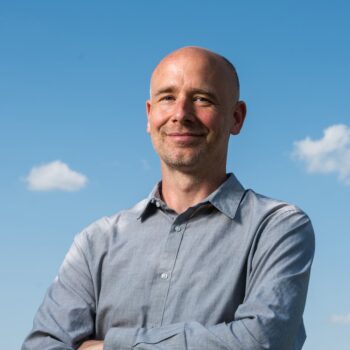







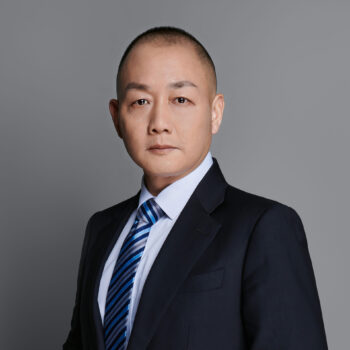

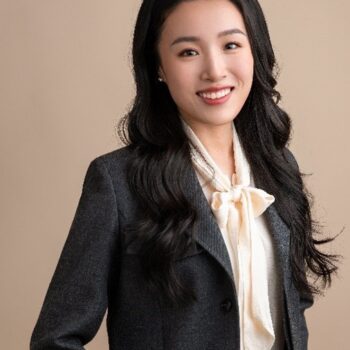




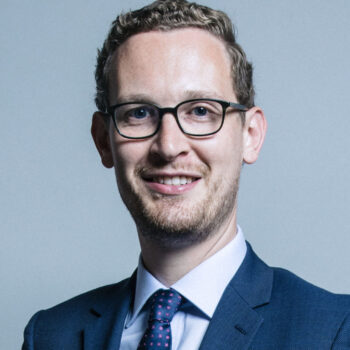

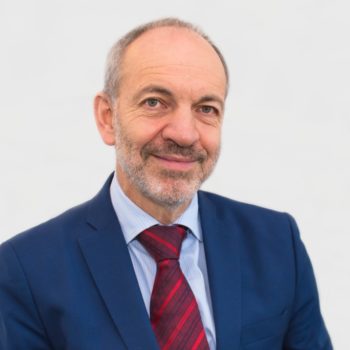

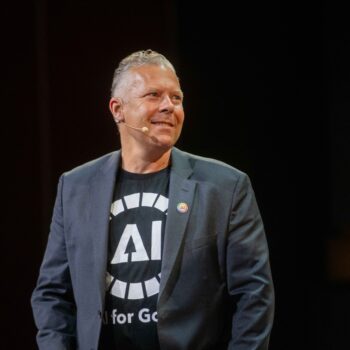




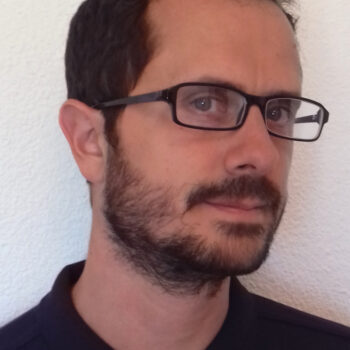



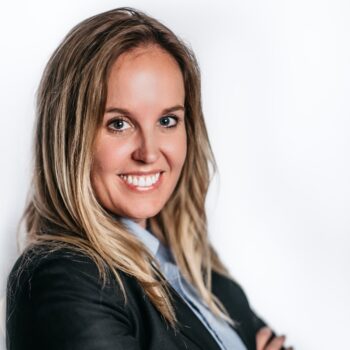
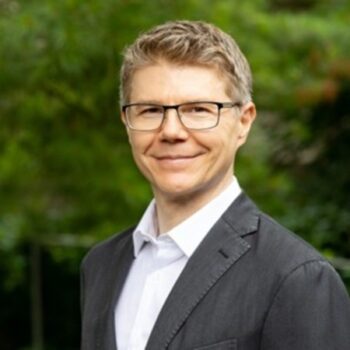






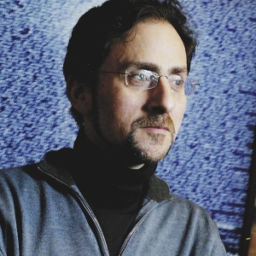






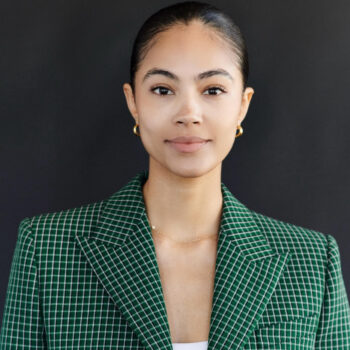



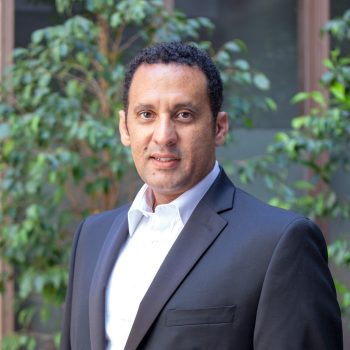




Summit Overview
Two days of never before presented, state of the art AI solutions and cutting edge knowledge, aligned with the UN Sustainable Development Goals
Programme Snapshot
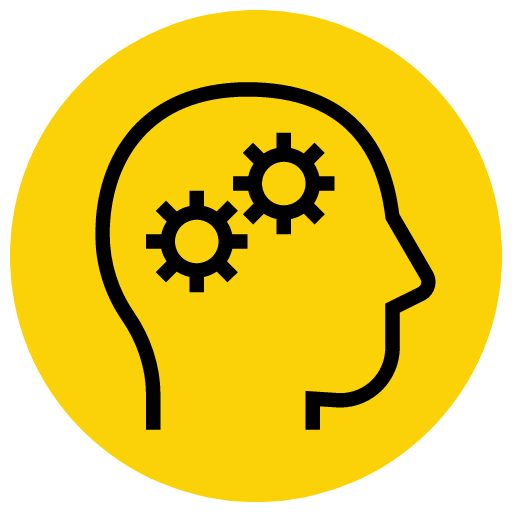
10:45
Welcome Address and Keynote Accessible in person Accesible online
Accesible online
AI for Good Main Stage
The Main Stage features interactive keynote talks from AI luminaries and world-renowned thought leaders, state-of-the-art AI solutions, pitching sessions and performances by AI inspired artists.
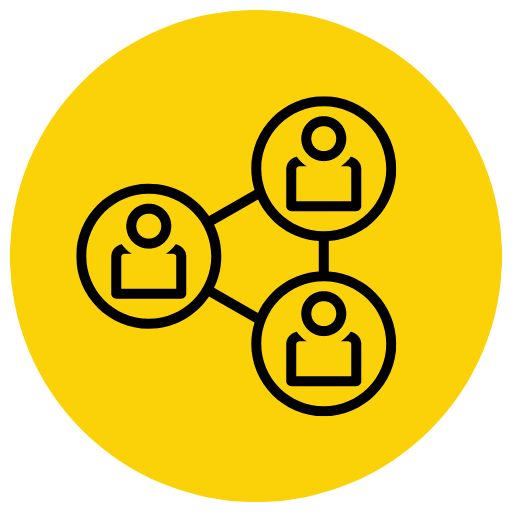
11:30
Networking Coffee Break & Stages (July 6-7) Accesible in person
AI SDGs Stage
The UN SDGs provide us with a global compass for a better future. Discover the latest AI solutions that are helping to accelerate positive human and social development.
Robotics for Good Stage
The future of Robotics for Good has landed in Geneva. Interact with 50+ ground-breaking robots and their human creators through interactive exhibits, talks and showcases.
Discovery Zone
Meet the experts behind the AI for Good Discovery series. Structured networking and discussions provide collaboration opportunities with like-minded subject matter experts to build AI solutions to environmental and social challenges.
Leader Lounge Talks
The Leader Lounge is a fully catered VIP networking lounge for speakers, UN partners, AI leaders, and sponsors. Access is restricted to those with a Leader Pass that can be purchased online or via select sponsorship packages.

12:30
State of the Art Accessible in person Accesible online
Accesible online
AI for Good Main Stage
The Main Stage features interactive keynote talks from AI luminaries and world-renowned thought leaders, state-of-the-art AI solutions, pitching sessions and performances by AI inspired artists.

14:00
Networking Lunch Break & Stages (July 6-7) Accessible in person
AI SDGs Stage
The UN SDGs provide us with a global compass for a better future. Discover the latest AI solutions that are helping to accelerate positive human and social development.
Robotics for Good Stage
The future of Robotics for Good has landed in Geneva. Interact with 50+ ground-breaking robots and their human creators through interactive exhibits, talks and showcases.
Discovery Zone
Meet the experts behind the AI for Good Discovery series. Structured networking and discussions provide collaboration opportunities with like-minded subject matter experts to build AI solutions to environmental and social challenges.
Leader Lounge Talks
The Leader Lounge is a fully catered VIP networking lounge for speakers, UN partners, AI leaders, and sponsors. Access is restricted to those with a Leader Pass that can be purchased online or via select sponsorship packages.

15:15
Keynotes Accessible in person Accessible online
Accessible online
AI for Good Main Stage
The Main Stage features interactive keynote talks from AI luminaries and world-renowned thought leaders, state-of-the-art AI solutions, pitching sessions and performances by AI inspired artists.

16:00
Networking Break & Stages (July 6-7) Accessible in person
AI SDGs Stage
The UN SDGs provide us with a global compass for a better future. Discover the latest AI solutions that are helping to accelerate positive human and social development.
Robotics for Good Stage
The future of Robotics for Good has landed in Geneva. Interact with 50+ ground-breaking robots and their human creators through interactive exhibits, talks and showcases.
Discovery Zone
Meet the experts behind the AI for Good Discovery series. Structured networking and discussions provide collaboration opportunities with like-minded subject matter experts to build AI solutions to environmental and social challenges.
Leader Lounge Talks
The Leader Lounge is a fully catered VIP networking lounge for speakers, UN partners, AI leaders, and sponsors. Access is restricted to those with a Leader Pass that can be purchased online or via select sponsorship packages.
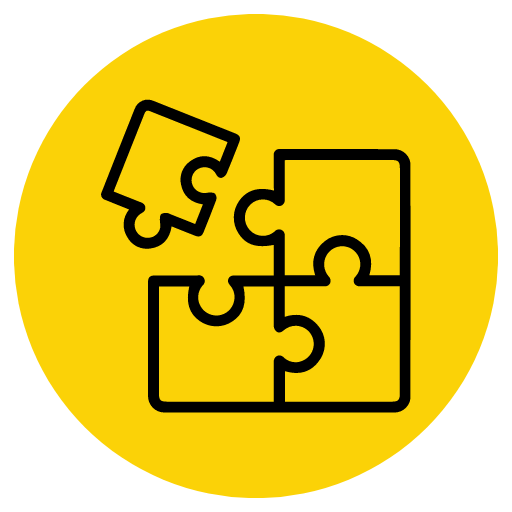
17:15
Pitching Sessions Accessible in person Accessible online
Accessible online
AI for Good Main Stage
The Main Stage features interactive keynote talks from AI luminaries and world-renowned thought leaders, state-of-the-art AI solutions, pitching sessions and performances by AI inspired artists.

19:30
Artistic Intelligence Performances & Networking (July 6-7) Accessible in person Accessible online
Accessible online
Artistic Intelligence
AI is bridging our artistic and technological capabilities, unlocking new levels of human creativity and performance. Connect with our ground-breaking artists via captivating performances and art installations.
Open Drinks Reception & Performance
AI is bridging our artistic and technological capabilities, unlocking new levels of human creativity and performance. Connect with our ground-breaking artists via captivating performances and art installations.

Leaders Dinner Accessible in person Leader Pass only
Leader Pass only
Leaders VIP Dinner
Summit Sponsors
Interested in supporting AI for Good? Get in touch for sponsorship opportunities
Meet the Robots
Join us in Geneva, Switzerland
The Summit will take place at the International Conference Center Geneva (CICG) on Rue de Varembé 17, 1202 Geneva, Switzerland. You may discover general information about travelling to Geneva below, via the International Geneva Welcome Centre (CAGI).
The Summit will take place at the International Conference Center Geneva (CICG) on Rue de Varembé 17, 1202 Geneva, Switzerland. You may discover general information about travelling to Geneva below, via the International Geneva Welcome Centre (CAGI).
The portal dedicated to welcoming internationals to Geneva

AI for Good Neural Network
Learn, Build, and Connect
Build connections with innovators and experts, link innovative ideas with social impact opportunities, and bring the community together to advance the SDGs using AI.
Join our new AI-powered match-making community platform to connect AI innovators with problem owners.
Greening ITU
While working with our members to leverage digital technologies to monitor, mitigate and adapt to climate change, ITU is also addressing climate change from within. This is in line with UN-wide commitments to ‘walk the talk’ and systematically integrate sustainability across its operations.
Discover the latest news on the Global Summit
Videos
Articles
This Summit can help ensure that Artificial Intelligence charts the course that benefits humanity and bolsters our shared values. The United Nations stands ready to be a universal platform for discussion together let us make sure we use AI to enhance human dignity and serve the global goods.
António Guterres
Secretary-General, United Nations
AI for Good provides an outstanding mix of world class presentations and discussion topics from an eminent line-up of global researchers and scientists. It is an important must-attend event for any organization or individual interested in demonstrating the possibilities of AI for societal benefit
Monash Data Futures Institute
Sponsor
It is wonderful to be with everybody in virtual space. […]. These are some of the most enjoyable and inspiring meetings that I have ever been to.
Stuart Russell
Professor, Author of “Human Compatible”
The registration to attend online will open shortly
The registration to attend in person will open shortly
For important information regarding the classification, please go to the Division’s website and review the last two questions in the Q&A page. Please be advised that the utilization of this list by AI for Good is exclusively for the purpose of ticketing for the 2024 AI for Good Global Summit, unless otherwise specified
| Country or Area | ISO-alpha2 Code | ISO-alpha3 Code | Developed / Developing regions |
| Algeria | DZ | DZA | Developing |
| Egypt | EG | EGY | Developing |
| Libya | LY | LBY | Developing |
| Morocco | MA | MAR | Developing |
| Sudan | SD | SDN | Developing |
| Tunisia | TN | TUN | Developing |
| Western Sahara | EH | ESH | Developing |
| British Indian Ocean Territory | IO | IOT | Developing |
| Burundi | BI | BDI | Developing |
| Comoros | KM | COM | Developing |
| Djibouti | DJ | DJI | Developing |
| Eritrea | ER | ERI | Developing |
| Ethiopia | ET | ETH | Developing |
| French Southern Territories | TF | ATF | Developing |
| Kenya | KE | KEN | Developing |
| Madagascar | MG | MDG | Developing |
| Malawi | MW | MWI | Developing |
| Mauritius | MU | MUS | Developing |
| Mayotte | YT | MYT | Developing |
| Mozambique | MZ | MOZ | Developing |
| Réunion | RE | REU | Developing |
| Rwanda | RW | RWA | Developing |
| Seychelles | SC | SYC | Developing |
| Somalia | SO | SOM | Developing |
| South Sudan | SS | SSD | Developing |
| Uganda | UG | UGA | Developing |
| United Republic of Tanzania | TZ | TZA | Developing |
| Zambia | ZM | ZMB | Developing |
| Zimbabwe | ZW | ZWE | Developing |
| Angola | AO | AGO | Developing |
| Cameroon | CM | CMR | Developing |
| Central African Republic | CF | CAF | Developing |
| Chad | TD | TCD | Developing |
| Congo | CG | COG | Developing |
| Democratic Republic of the Congo | CD | COD | Developing |
| Equatorial Guinea | GQ | GNQ | Developing |
| Gabon | GA | GAB | Developing |
| Sao Tome and Principe | ST | STP | Developing |
| Botswana | BW | BWA | Developing |
| Eswatini | SZ | SWZ | Developing |
| Lesotho | LS | LSO | Developing |
| Namibia | NA | NAM | Developing |
| South Africa | ZA | ZAF | Developing |
| Benin | BJ | BEN | Developing |
| Burkina Faso | BF | BFA | Developing |
| Cabo Verde | CV | CPV | Developing |
| Côte d’Ivoire | CI | CIV | Developing |
| Gambia | GM | GMB | Developing |
| Ghana | GH | GHA | Developing |
| Guinea | GN | GIN | Developing |
| Guinea-Bissau | GW | GNB | Developing |
| Liberia | LR | LBR | Developing |
| Mali | ML | MLI | Developing |
| Mauritania | MR | MRT | Developing |
| Niger | NE | NER | Developing |
| Nigeria | NG | NGA | Developing |
| Saint Helena | SH | SHN | Developing |
| Senegal | SN | SEN | Developing |
| Sierra Leone | SL | SLE | Developing |
| Togo | TG | TGO | Developing |
| Anguilla | AI | AIA | Developing |
| Antigua and Barbuda | AG | ATG | Developing |
| Aruba | AW | ABW | Developing |
| Bahamas | BS | BHS | Developing |
| Barbados | BB | BRB | Developing |
| Bonaire, Sint Eustatius and Saba | BQ | BES | Developing |
| British Virgin Islands | VG | VGB | Developing |
| Cayman Islands | KY | CYM | Developing |
| Cuba | CU | CUB | Developing |
| Curaçao | CW | CUW | Developing |
| Dominica | DM | DMA | Developing |
| Dominican Republic | DO | DOM | Developing |
| Grenada | GD | GRD | Developing |
| Guadeloupe | GP | GLP | Developing |
| Haiti | HT | HTI | Developing |
| Jamaica | JM | JAM | Developing |
| Martinique | MQ | MTQ | Developing |
| Montserrat | MS | MSR | Developing |
| Puerto Rico | PR | PRI | Developing |
| Saint Barthélemy | BL | BLM | Developing |
| Saint Kitts and Nevis | KN | KNA | Developing |
| Saint Lucia | LC | LCA | Developing |
| Saint Martin (French Part) | MF | MAF | Developing |
| Saint Vincent and the Grenadines | VC | VCT | Developing |
| Sint Maarten (Dutch part) | SX | SXM | Developing |
| Trinidad and Tobago | TT | TTO | Developing |
| Turks and Caicos Islands | TC | TCA | Developing |
| United States Virgin Islands | VI | VIR | Developing |
| Belize | BZ | BLZ | Developing |
| Costa Rica | CR | CRI | Developing |
| El Salvador | SV | SLV | Developing |
| Guatemala | GT | GTM | Developing |
| Honduras | HN | HND | Developing |
| Mexico | MX | MEX | Developing |
| Nicaragua | NI | NIC | Developing |
| Panama | PA | PAN | Developing |
| Argentina | AR | ARG | Developing |
| Bolivia (Plurinational State of) | BO | BOL | Developing |
| Bouvet Island | BV | BVT | Developing |
| Brazil | BR | BRA | Developing |
| Chile | CL | CHL | Developing |
| Colombia | CO | COL | Developing |
| Ecuador | EC | ECU | Developing |
| Falkland Islands (Malvinas) | FK | FLK | Developing |
| French Guiana | GF | GUF | Developing |
| Guyana | GY | GUY | Developing |
| Paraguay | PY | PRY | Developing |
| Peru | PE | PER | Developing |
| South Georgia and the South Sandwich Islands | GS | SGS | Developing |
| Suriname | SR | SUR | Developing |
| Uruguay | UY | URY | Developing |
| Venezuela (Bolivarian Republic of) | VE | VEN | Developing |
| Kazakhstan | KZ | KAZ | Developing |
| Kyrgyzstan | KG | KGZ | Developing |
| Tajikistan | TJ | TJK | Developing |
| Turkmenistan | TM | TKM | Developing |
| Uzbekistan | UZ | UZB | Developing |
| China | CN | CHN | Developing |
| China, Hong Kong Special Administrative Region | HK | HKG | Developing |
| China, Macao Special Administrative Region | MO | MAC | Developing |
| Democratic People’s Republic of Korea | KP | PRK | Developing |
| Mongolia | MN | MNG | Developing |
| Brunei Darussalam | BN | BRN | Developing |
| Cambodia | KH | KHM | Developing |
| Indonesia | ID | IDN | Developing |
| Lao People’s Democratic Republic | LA | LAO | Developing |
| Malaysia | MY | MYS | Developing |
| Myanmar | MM | MMR | Developing |
| Philippines | PH | PHL | Developing |
| Singapore | SG | SGP | Developing |
| Thailand | TH | THA | Developing |
| Timor-Leste | TL | TLS | Developing |
| Viet Nam | VN | VNM | Developing |
| Afghanistan | AF | AFG | Developing |
| Bangladesh | BD | BGD | Developing |
| Bhutan | BT | BTN | Developing |
| India | IN | IND | Developing |
| Iran (Islamic Republic of) | IR | IRN | Developing |
| Maldives | MV | MDV | Developing |
| Nepal | NP | NPL | Developing |
| Pakistan | PK | PAK | Developing |
| Sri Lanka | LK | LKA | Developing |
| Armenia | AM | ARM | Developing |
| Azerbaijan | AZ | AZE | Developing |
| Bahrain | BH | BHR | Developing |
| Georgia | GE | GEO | Developing |
| Iraq | IQ | IRQ | Developing |
| Jordan | JO | JOR | Developing |
| Kuwait | KW | KWT | Developing |
| Lebanon | LB | LBN | Developing |
| Oman | OM | OMN | Developing |
| Qatar | QA | QAT | Developing |
| Saudi Arabia | SA | SAU | Developing |
| State of Palestine | PS | PSE | Developing |
| Syrian Arab Republic | SY | SYR | Developing |
| Turkey | TR | TUR | Developing |
| United Arab Emirates | AE | ARE | Developing |
| Yemen | YE | YEM | Developing |
| Fiji | FJ | FJI | Developing |
| New Caledonia | NC | NCL | Developing |
| Papua New Guinea | PG | PNG | Developing |
| Solomon Islands | SB | SLB | Developing |
| Vanuatu | VU | VUT | Developing |
| Guam | GU | GUM | Developing |
| Kiribati | KI | KIR | Developing |
| Marshall Islands | MH | MHL | Developing |
| Micronesia (Federated States of) | FM | FSM | Developing |
| Nauru | NR | NRU | Developing |
| Northern Mariana Islands | MP | MNP | Developing |
| Palau | PW | PLW | Developing |
| United States Minor Outlying Islands | UM | UMI | Developing |
| American Samoa | AS | ASM | Developing |
| Cook Islands | CK | COK | Developing |
| French Polynesia | PF | PYF | Developing |
| Niue | NU | NIU | Developing |
| Pitcairn | PN | PCN | Developing |
| Samoa | WS | WSM | Developing |
| Tokelau | TK | TKL | Developing |
| Tonga | TO | TON | Developing |
| Tuvalu | TV | TUV | Developing |
| Wallis and Futuna Islands | WF | WLF | Developing |
New membership are not allowed.





